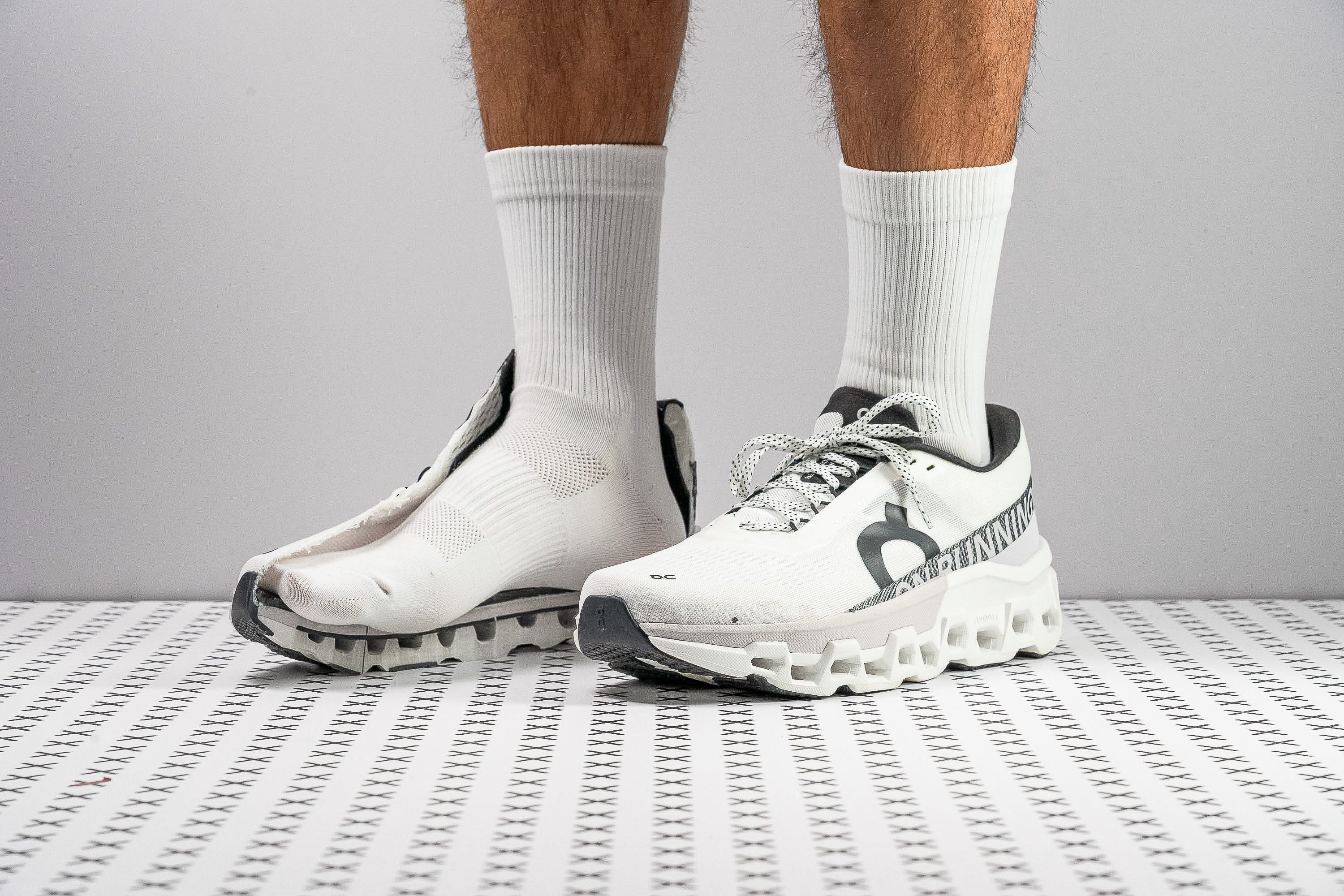Our verdict
- Top pick in best On running shoes
- Top pick in best running shoes for bunions
Pros
- Premium materials
- Enhanced cushioning from v1
- Roomy toebox
- Works fantastic for midfoot strikers
- Unique ride feel
- Excels in long runs
- Solid stability
Cons
- Breathability needs improvement
- Tongue lacks enough cushion
- Needs to lose a bit of weight
- Not enough energy return
Audience verdict
- Top 29% in road running shoes
- Top 30% in neutral running shoes
- Top 8% most popular running shoes
Comparison
The most similar running shoes compared
+ + Add a shoe | |||||
|---|---|---|---|---|---|
| Audience score | 89 Great! | 89 Great! | 89 Great! | 90 Superb! | |
| Price | £170 | £130 | £220 | £170 | |
| Pace | Daily running | Daily running | Daily runningTempo | Daily running | |
| Shock absorption | High | Moderate | High | High | |
| Energy return | Moderate | Moderate | Low | Moderate | |
| Traction | High | Moderate | Moderate | High | |
| Arch support | Neutral | Neutral | Neutral | Neutral | |
| Weight lab Weight brand | 10.3 oz / 292g 10.4 oz / 295g | 10.1 oz / 285g 9.8 oz / 277g | 9.1 oz / 258g 9 oz / 255g | 9.6 oz / 272g 9.7 oz / 275g | |
| Drop lab Drop brand | 6.6 mm 6.0 mm | 7.0 mm 6.0 mm | 6.7 mm 6.0 mm | 9.4 mm 6.0 mm | |
| Strike pattern | Mid/forefoot | HeelMid/forefoot | Mid/forefoot | HeelMid/forefoot | |
| Size | Slightly large | True to size | True to size | True to size | |
| Midsole softness | Balanced | Balanced | Soft | Balanced | |
| Difference in midsole softness in cold | Small | Normal | Small | Small | |
| Toebox durability | Good | Decent | Decent | Decent | |
| Heel padding durability | Decent | Decent | Bad | Bad | |
| Outsole durability | Good | Bad | Good | Good | |
| Breathability | Warm | Moderate | Moderate | Moderate | |
| Width / fit | Wide | Medium | Medium | Medium | |
| Toebox width | Medium | Medium | Medium | Medium | |
| Stiffness | Stiff | Moderate | Moderate | Stiff | |
| Torsional rigidity | Moderate | Moderate | Stiff | Stiff | |
| Heel counter stiffness | Moderate | Moderate | Moderate | Moderate | |
| Rocker | ✓ | ✓ | ✗ | ✓ | |
| Heel lab Heel brand | 37.9 mm 35.0 mm | 36.8 mm 31.0 mm | 39.7 mm 37.0 mm | 39.9 mm 37.0 mm | |
| Forefoot lab Forefoot brand | 31.3 mm 29.0 mm | 29.8 mm 25.0 mm | 33.0 mm 31.0 mm | 30.5 mm 31.0 mm | |
| Widths available | Normal | Normal | Normal | Normal | |
| Orthotic friendly | ✓ | ✓ | ✓ | ✓ | |
| Season | All seasons | All seasons | All seasons | All seasons | |
| Removable insole | ✓ | ✓ | ✓ | ✓ | |
| Ranking | #107 Top 28% | #95 Top 25% | #97 Top 26% | #44 Top 12% | |
| Popularity | #29 Top 8% | #234 Bottom 38% | #160 Top 42% | #189 Top 50% |
Who should buy
In our thorough examination from heel to toe, the On Cloudmonster 2 emerged as a remarkable choice for:
- Individuals with wide feet seeking a maximalist daily trainer.
- Lovers of the original Cloudmonster ready to experience an enhanced, more responsive, and roomier upgrade.
- Distance runners looking for a distinctively styled, premium shoe ideal for enduring runs and extensive workouts.
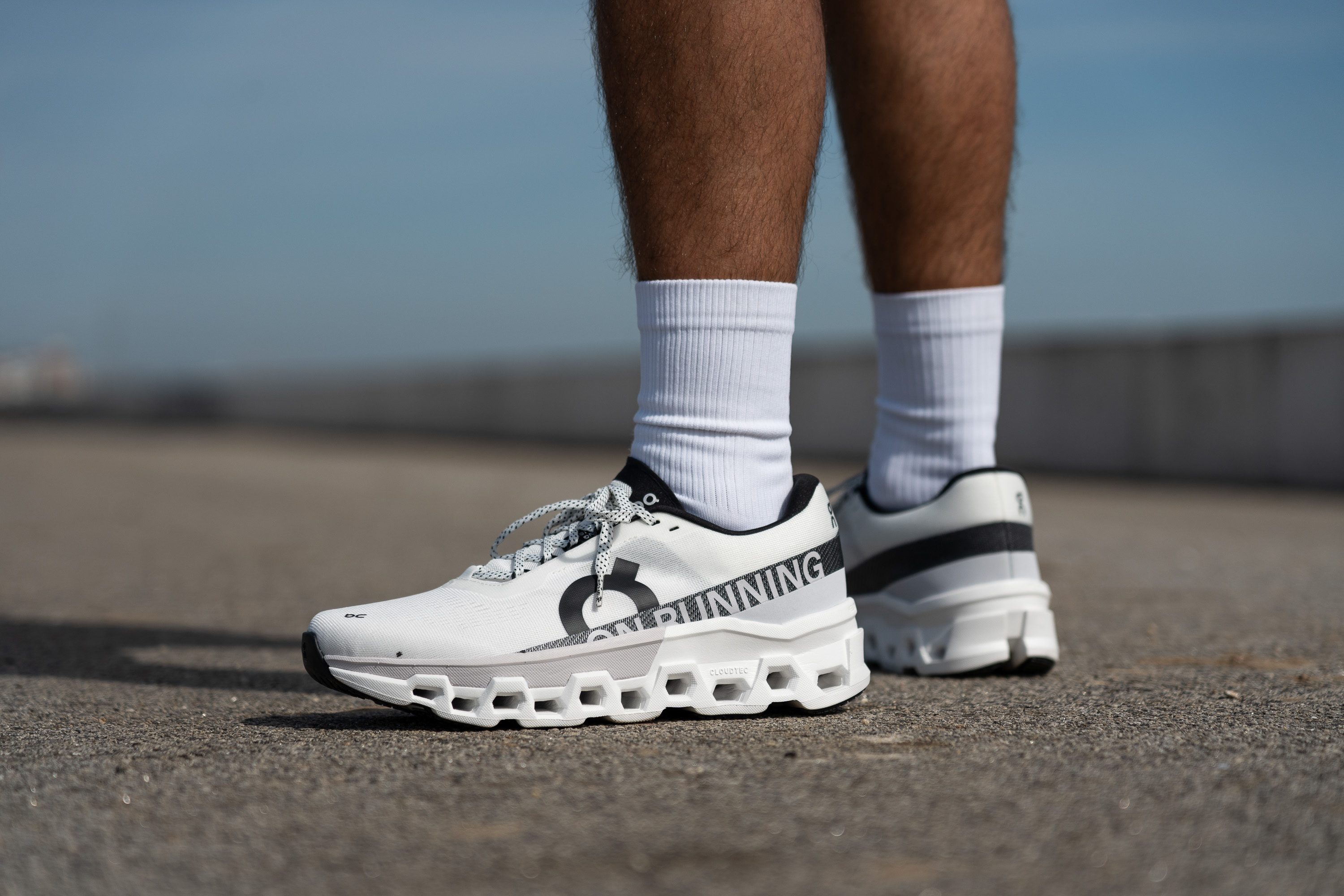
Who should NOT buy
While the Cloudmonster 2 brings some enhancements in responsiveness, it falls short compared to its high-priced rivals. For example, the ASICS Superblast boasts a lighter weight, greater stack height, and significantly enhanced energy return. And Nike's Invincible 3, with its full-length ZoomX foam, also outpaces in terms of performance.
Regarding comfort and breathability, the Cloudmonster 2 falls a bit short. Its minimally padded tongue may disappoint. For those seeking a cosy feel, we found the ASICS Nimbus 26 and Hoka Clifton 9 to be far more rewarding maximalist choices.
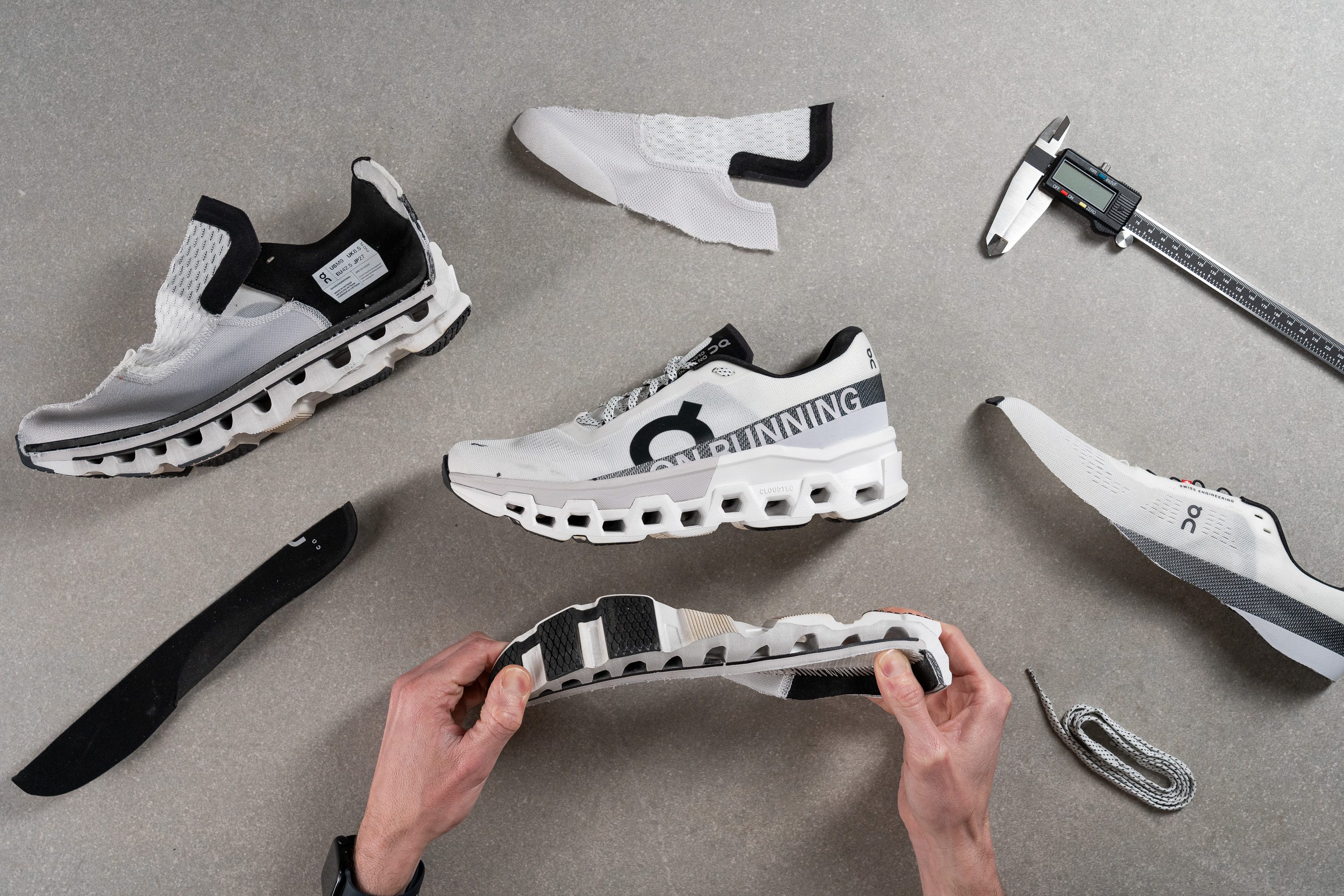
Cushioning
Shock absorption
The Cloudmonster 2 feels more like a version 1.5 than a 2.0 update. Shock absorption remains nearly identical, with 137 SA in the heel and 115 SA in the forefoot—a subtle improvement that slightly enhances long-distance comfort.
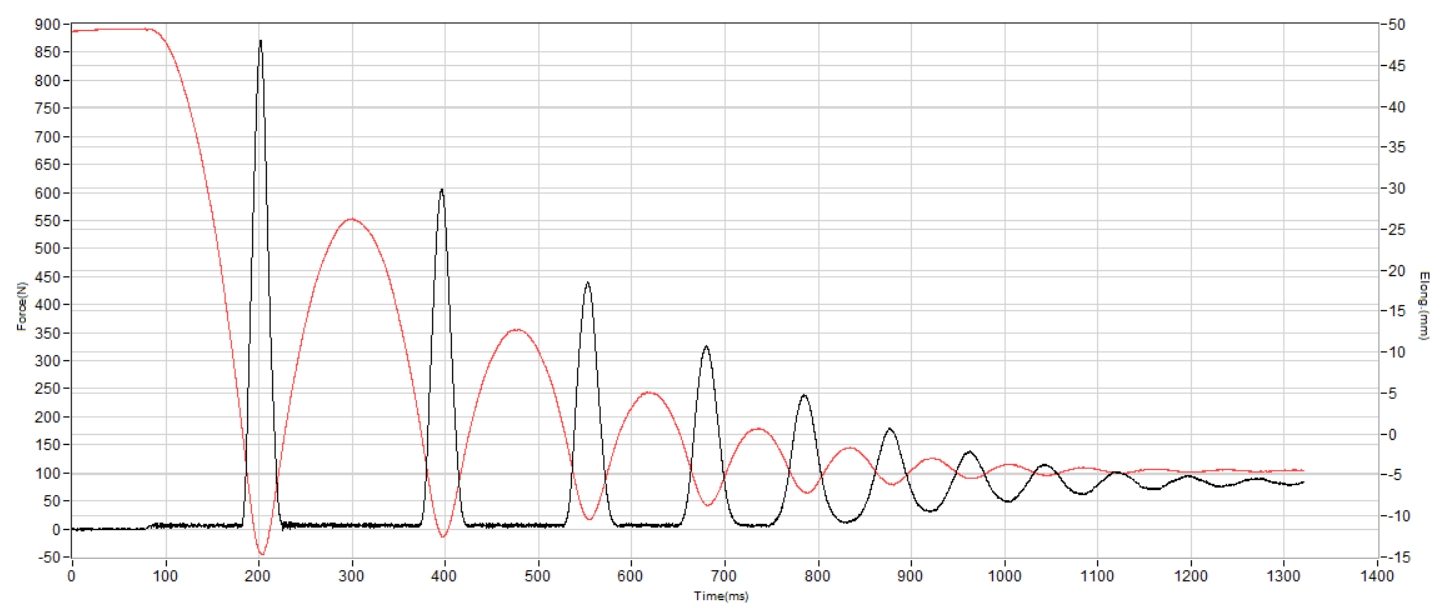
| Cloudmonster 2 | 137 SA |
| Average | 130 SA |
Energy return
But the biggest upgrade we hoped for never came. Energy return remains underwhelming for uptempo runs—just 56.5% in the heel and 60.3% in the forefoot. Not terrible, but at this price, we expected a punchier bounce.
| Cloudmonster 2 | 56.5% |
| Average | 58.6% |
Heel stack
The heel's cushioning has been boosted by a solid 3 mm, jumping from 34.9 mm to 37.9 mm.
This increase, while significant, still keeps the shoe below most max-cushioned options, yet it's now a great pick for heel strikers.
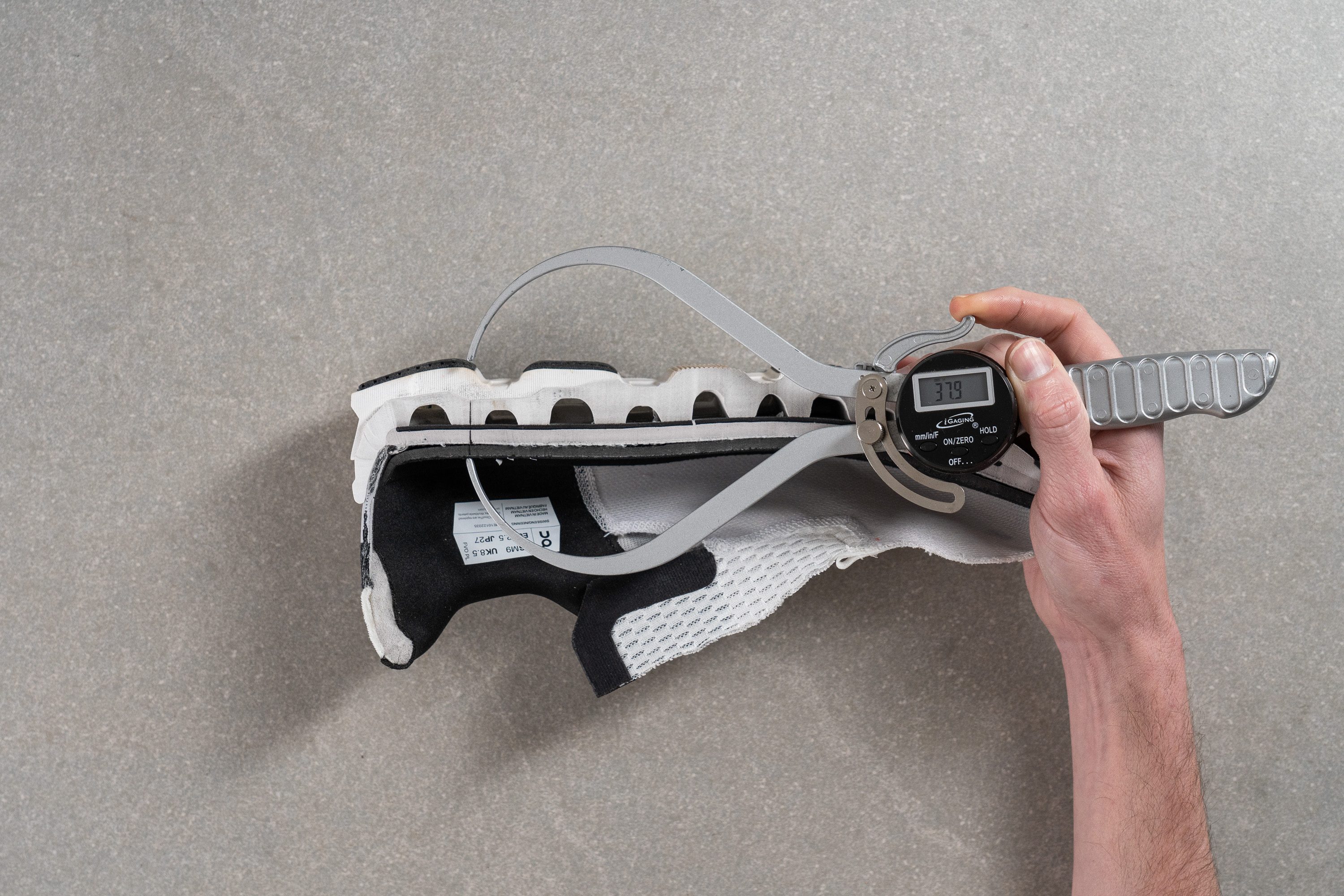
| Cloudmonster 2 | 37.9 mm |
| Average | 34.8 mm |
Forefoot stack
The forefoot features nothing less than 31.3 mm of cushioning, perfect for midfoot or forefoot strikers.
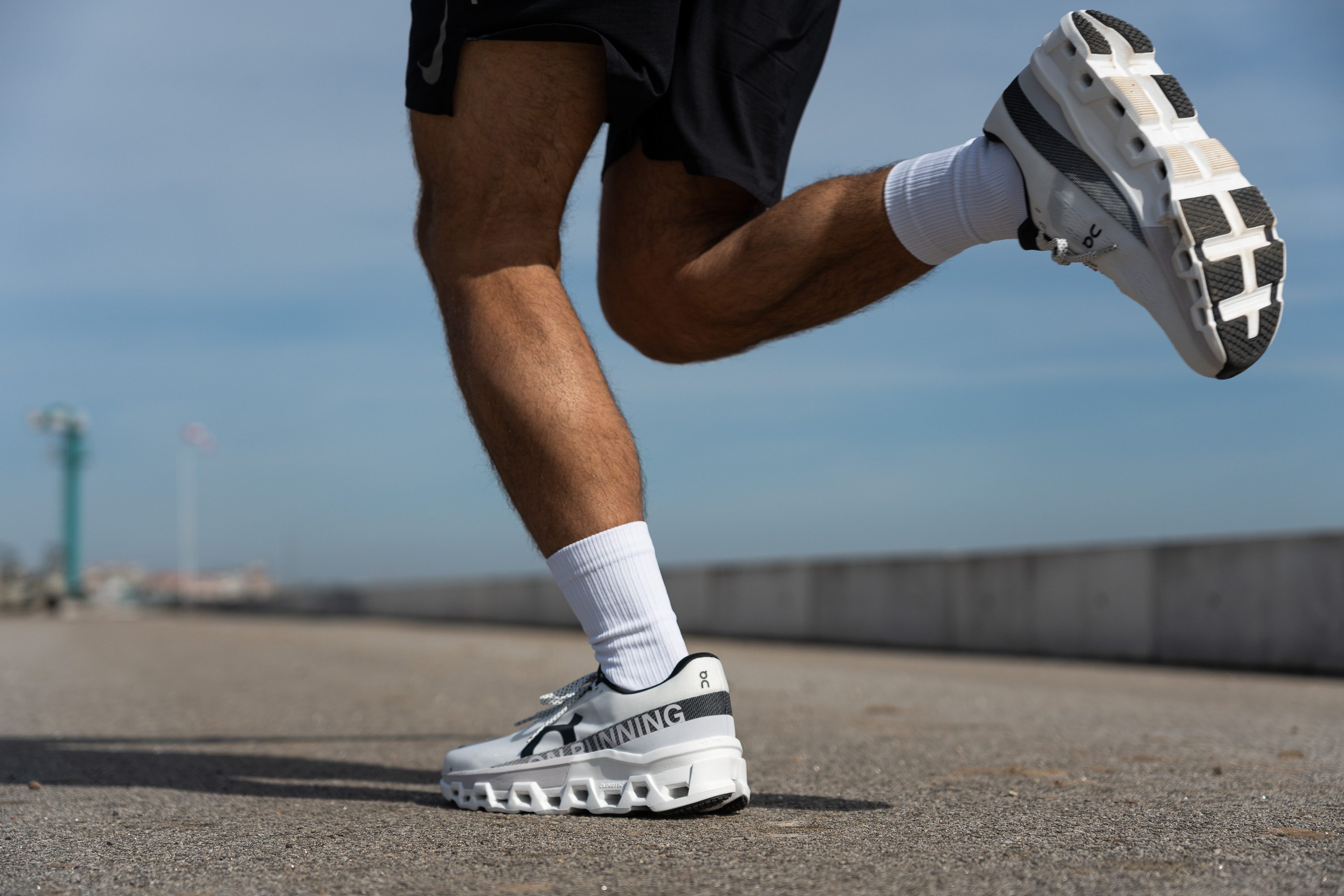
This represents a significant 3.2-mm increase from the OG Cloudmonster, making it a great pick for marathoners seeking a leg-saving ride on long runs.
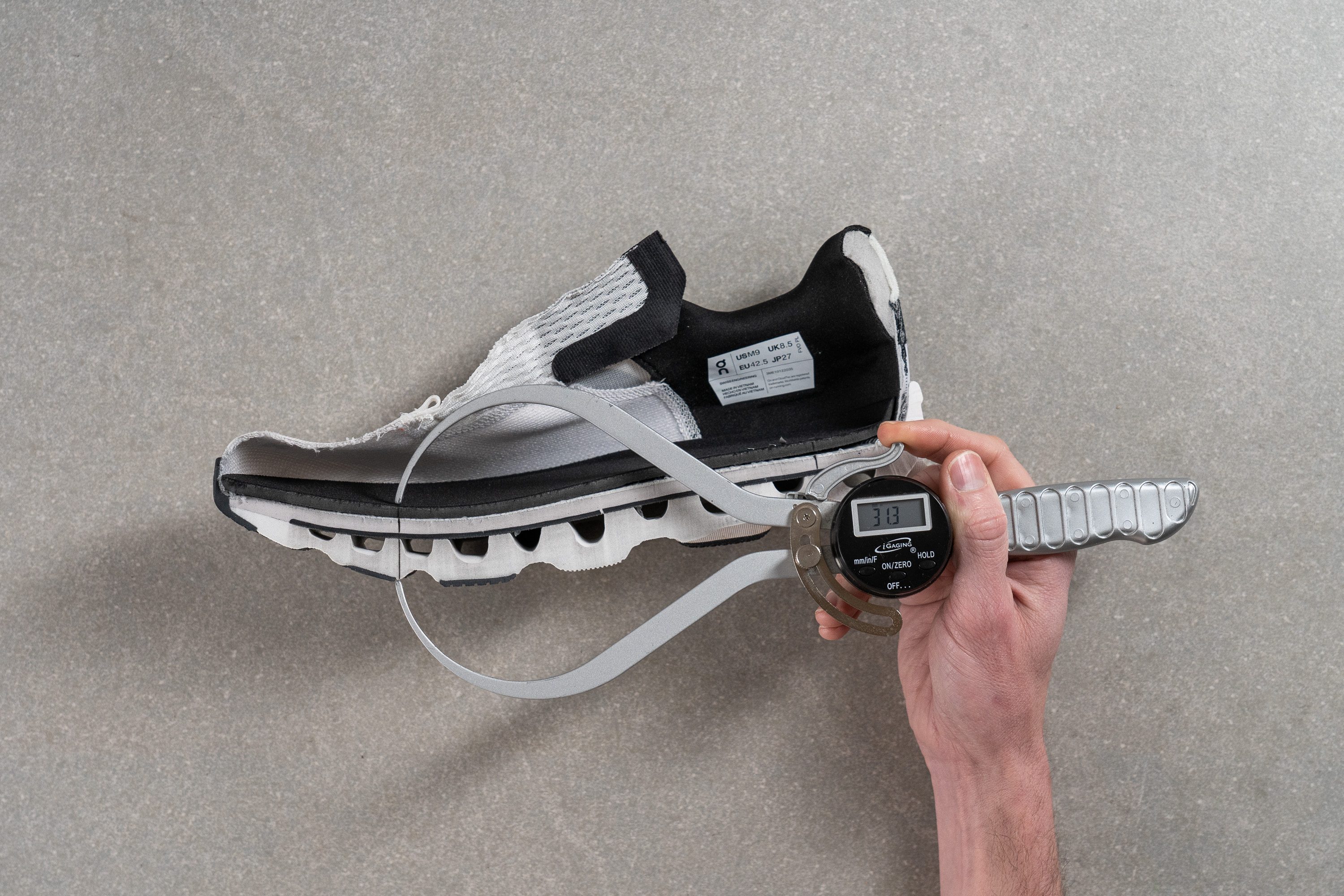
| Cloudmonster 2 | 31.3 mm |
| Average | 26.2 mm |
Drop
On claims a 6-mm drop for the Cloudmonster 2, and our precise measurements, aligned with World Athletics standards, consistently showed a 6.6-mm real drop.
This minor 0.6-mm variance from the stated drop is negligible, ensuring a virtually identical running feel. For the Cloudmonster 2, maintaining a medium drop is crucial due to its CloudTec system and moderate toe rocker, which already promote forward motion—a larger offset could ruin the experience.
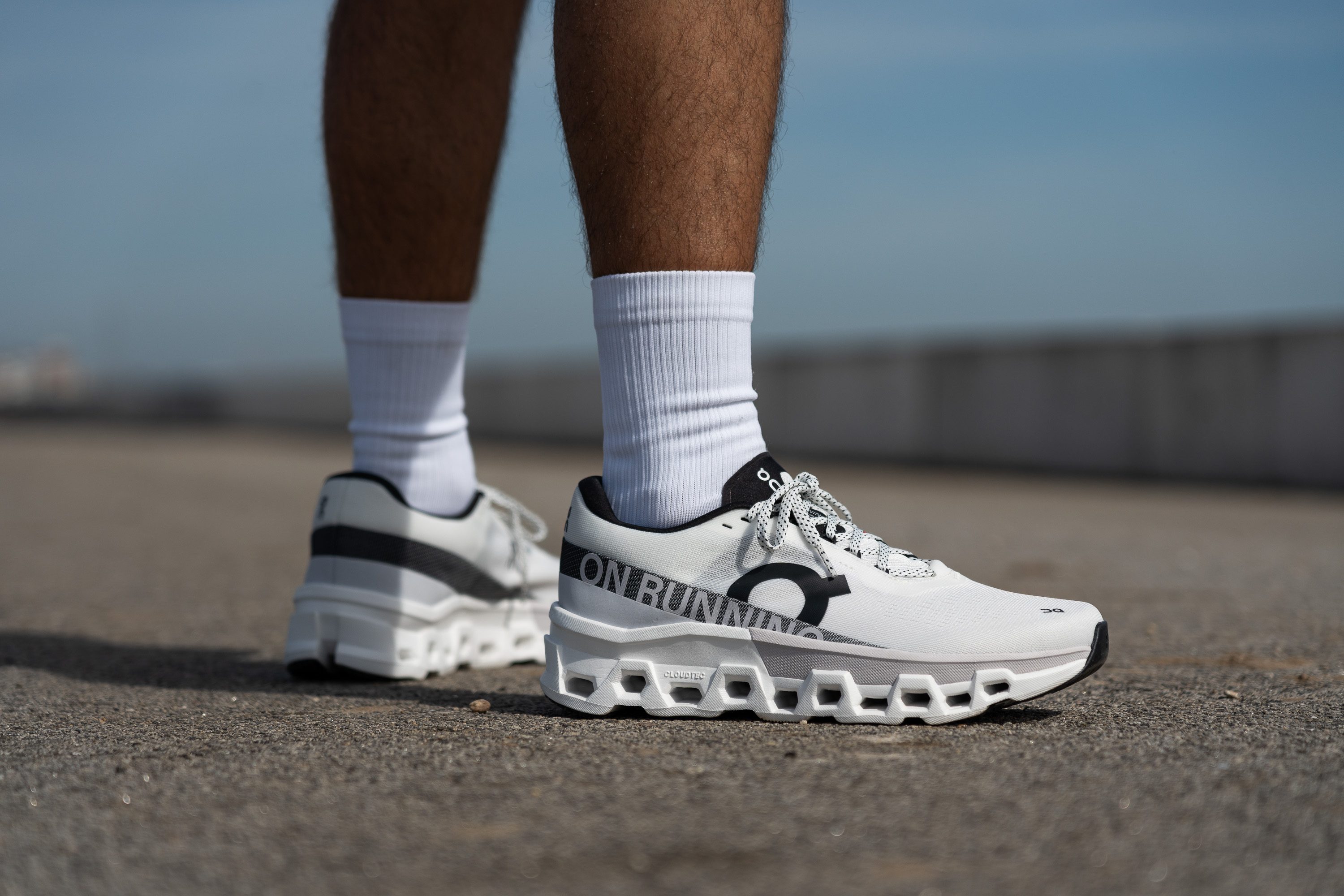
| Cloudmonster 2 | 6.6 mm |
| Average | 8.6 mm |
Midsole softness
UpdatedTransitioning to the Helion midsole, our analysis revealed a softness score of 49.6 AC for the lower part of this dual-density midsole, closely mirroring the original Cloudmonster's metrics. Yet, the CloudTec technology gives the shoe with an unexpectedly softer feel than the numbers suggest.
The so-called "clouds" in the design contribute significantly to compression, effectively softening the ride and enhancing its overall comfort. Additionally, the generous cushioning is more than adequate for enduring long-distance runs, ensuring a supportive and less monotonous experience.
Finally, let's talk a bit about the Helion foam. On brands it as a "superfoam" but, from our perspective, it's not into that group.
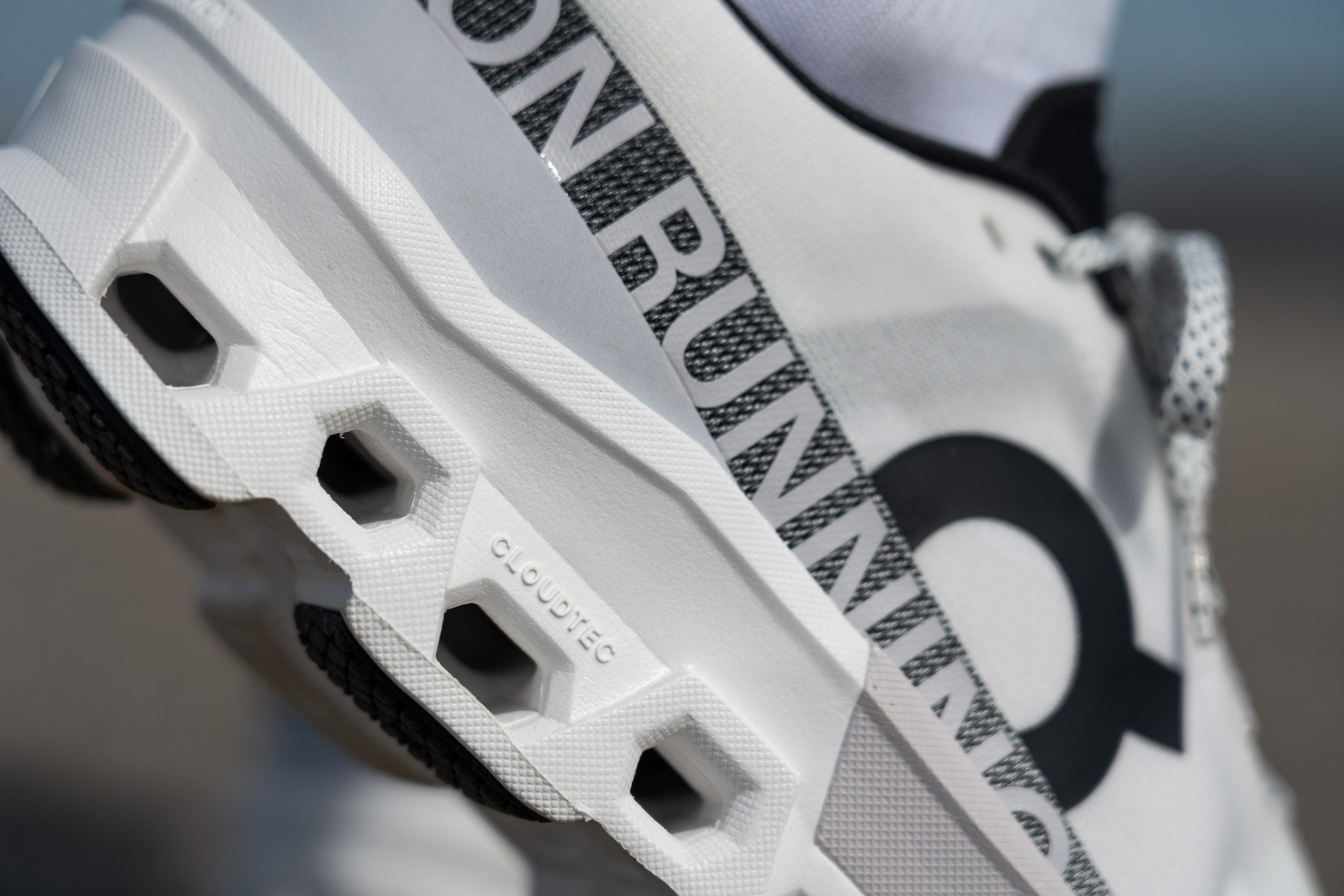
Helion is crafted from a blend of EVA and Olefin Block Co-Polymers (OBC)—essentially, just an enhanced EVA like ASICS' FF Blast+ that doesn't quite reach the level of PEBA-based, real superfoams such as Nike's ZoomX or Saucony's PWRRUN PB.
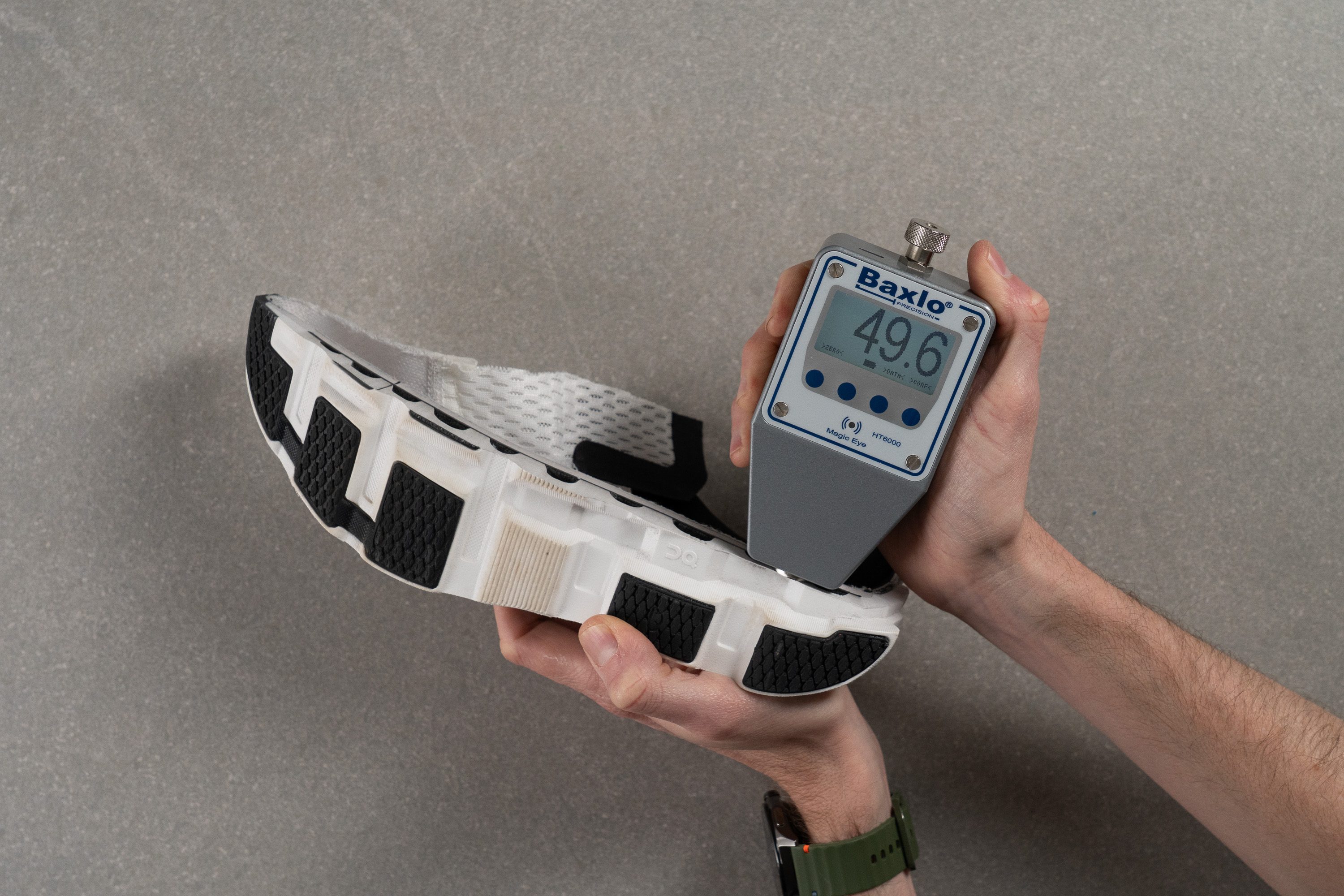
| Cloudmonster 2 | 49.6 AC |
| Average | 36.2 AC |
Secondary foam
UpdatedAs we said before, the On Cloudmonster 2 boasts another layer of Helion foam. Upon examining the this layer, we noted its insanely firm nature at 61.1 AC.
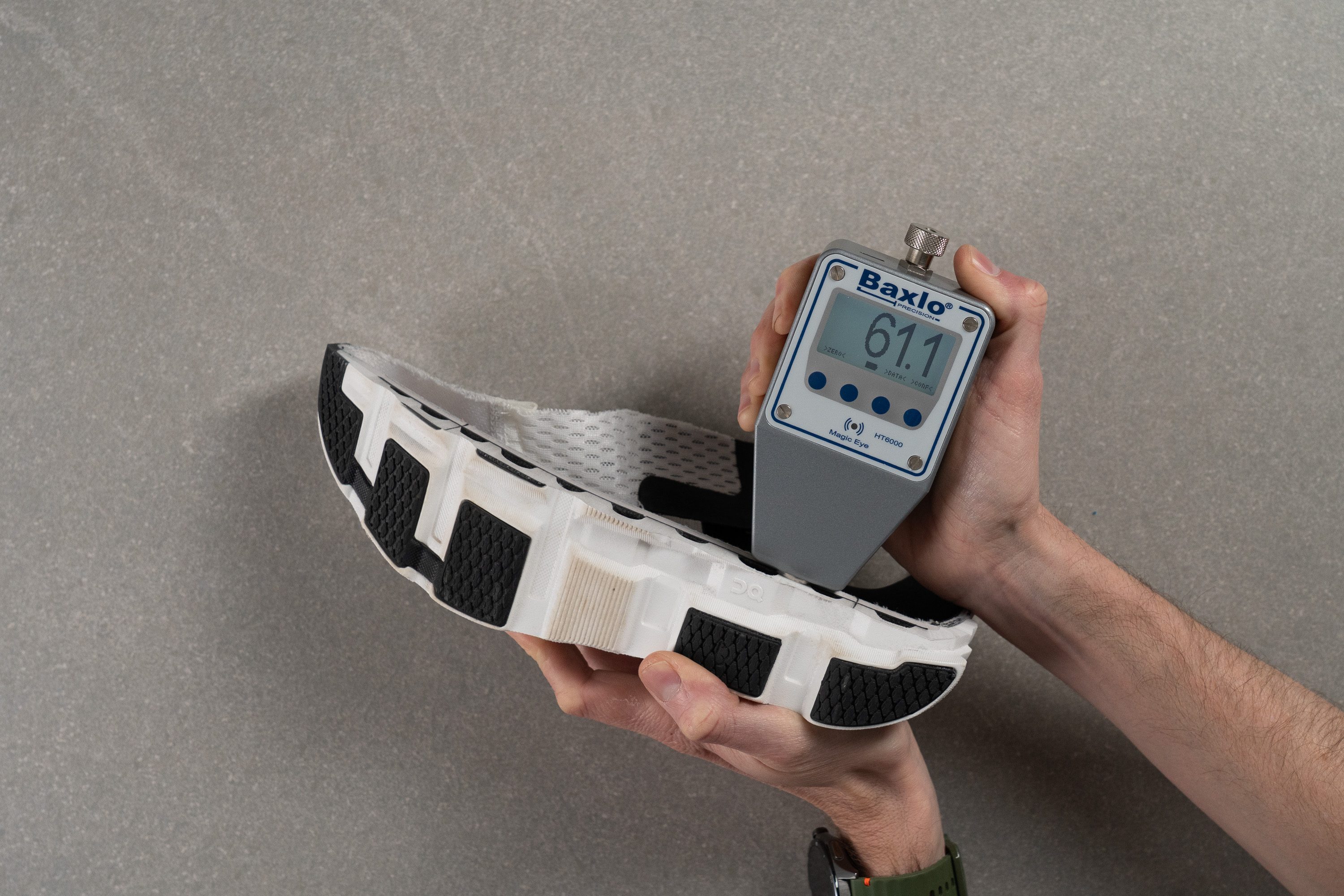
| Cloudmonster 2 | 61.1 AC |
| Average | 38.9 AC |
Plate
On continues to integrate the Speedboard plate, crafted from TPU rather than carbon fibre, aligning with its daily running shoe identity.
This choice is fitting, as the plate doesn't increase the stiffness but adds a noticeable springiness to each step. And it plays a crucial role in enhancing the shoe's dynamics, compressing the Helion foam clouds effectively for optimal performance.
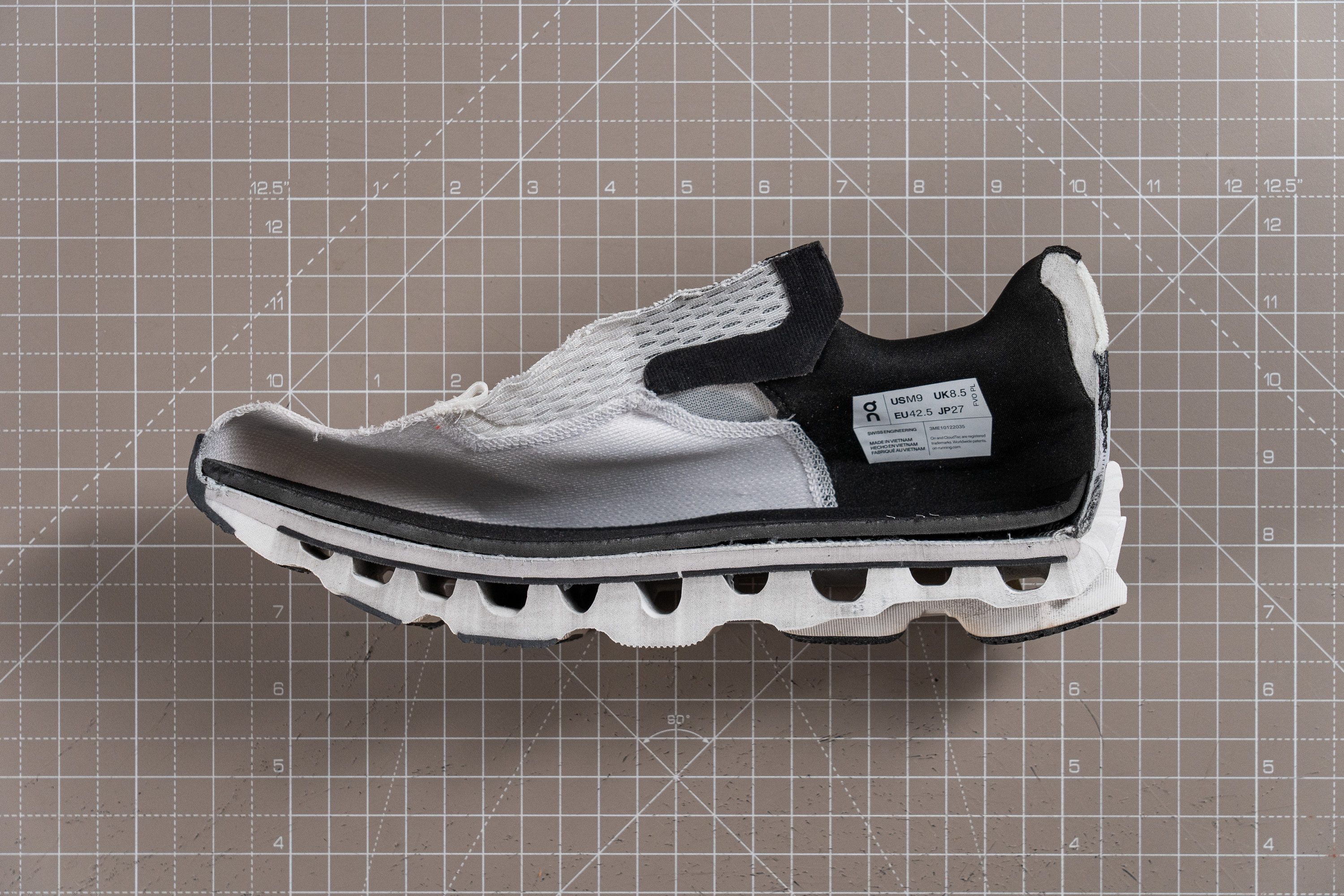
Size and fit
Size
On Cloudmonster 2 fits slightly large (200 votes).
Internal length
| Cloudmonster 2 | 271.7 mm |
| Average | 269.4 mm |
Width / Fit
UpdatedWhat truly amazed us about the Cloudmonster 2 was its spacious feel right from the first step—not just compared to its predecessor, but also against nearly any other running shoe.
Those with wide feet looking to give this shoe a try will appreciate the generous width (98.5 mm), finding it to be a significant plus.
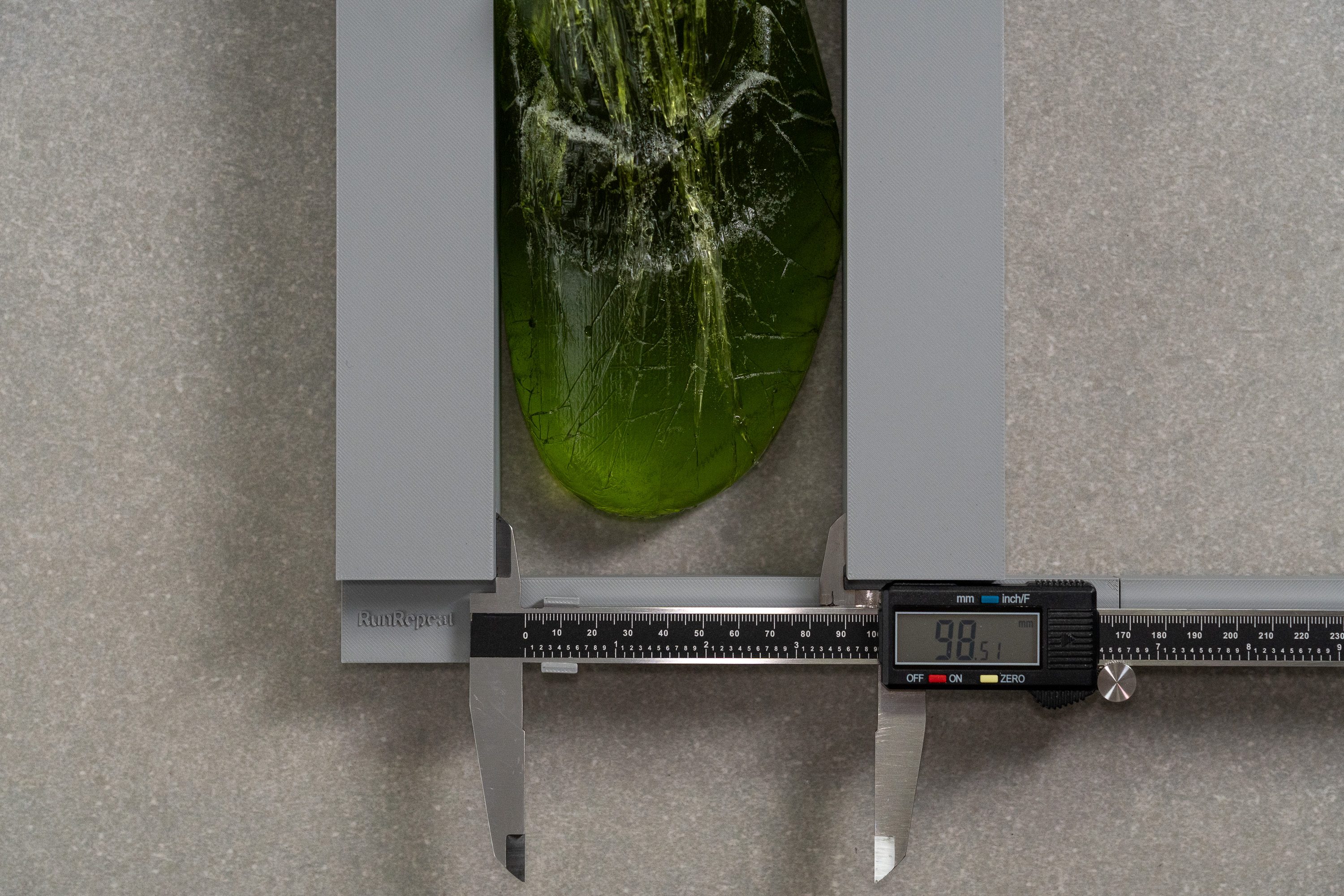
| Cloudmonster 2 | 98.5 mm |
| Average | 95.1 mm |
Toebox width
UpdatedOn the flip side, the big toe area isn’t particularly broad, with an average width of 74.5 mm that should work well for most runners. However, those with duck-shaped feet might prefer a bit more space. For everyone else, it should suffice.
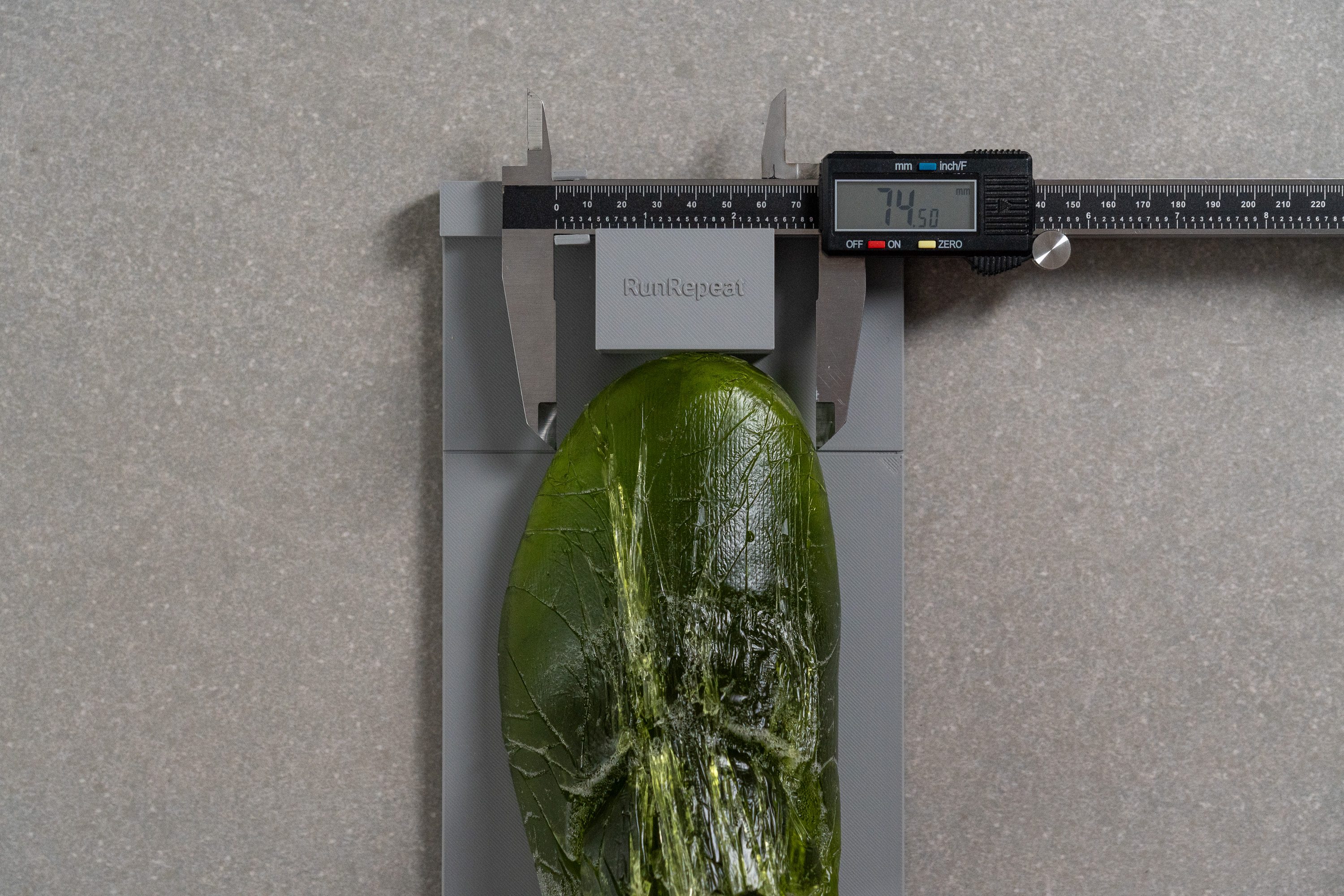
| Cloudmonster 2 | 74.5 mm |
| Average | 73.3 mm |
Toebox height
In terms of height, the toebox of the Cloudmonster 2 features a classic On design with minimal room for toe movement. We measured 25.3 mm—well below the average—making it better suited for those who prefer a locked-in feel.
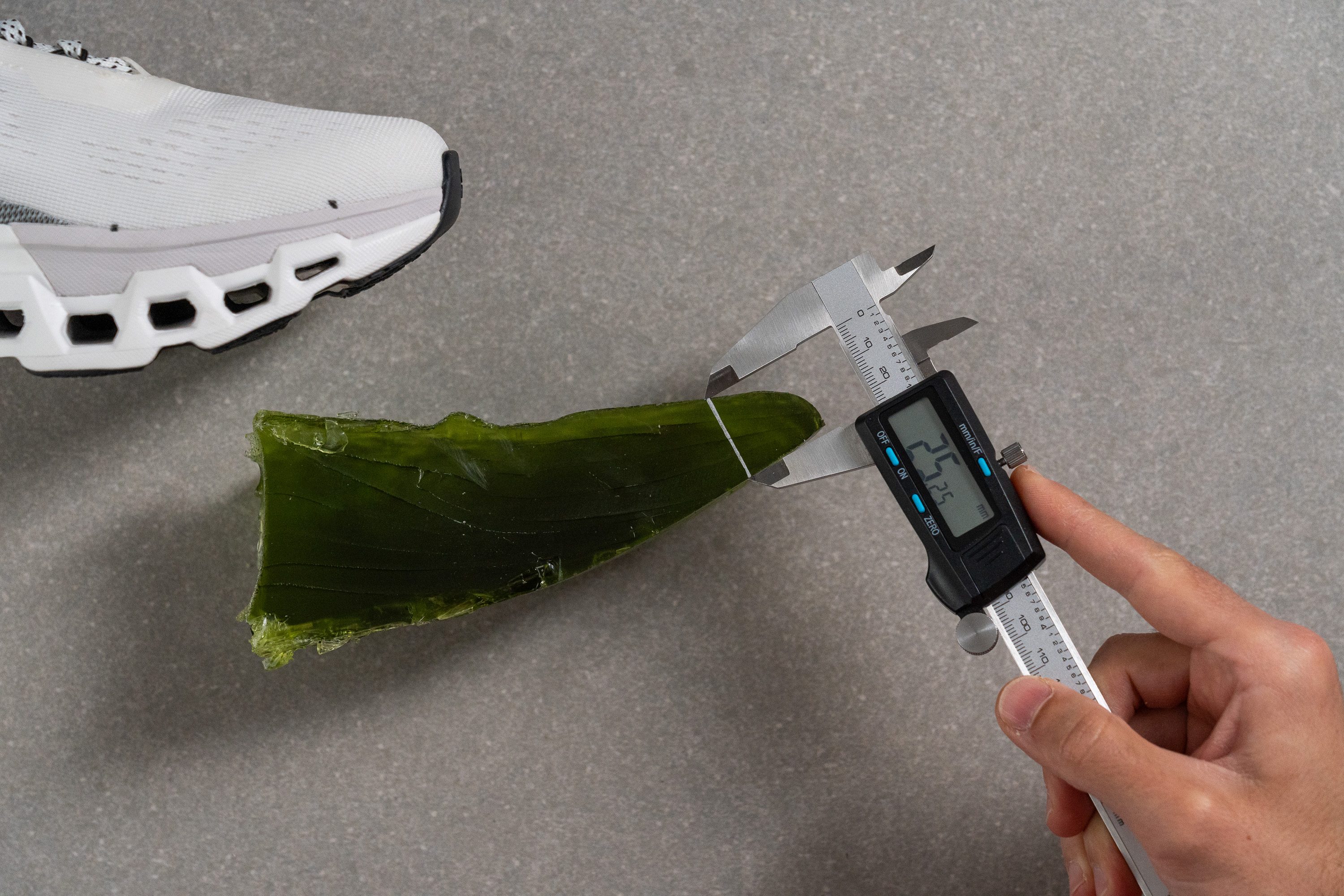
| Cloudmonster 2 | 25.3 mm |
| Average | 27.0 mm |
Traction / Grip
Traction test
Following the SATRA TM144 grip test method, we recorded the Cloudmonster 2's friction score at 0.50. This is a standard reading for a road running shoe indicating its sufficient traction for both dry and wet concrete.
So no worries, this On shoe has got your back on wet roads and sidewalks.
| Cloudmonster 2 | 0.50 |
| Average | 0.49 |
Outsole design
The outsole of the Cloudmonster 2 keeps the familiar pod-based CloudTec structure, but with chunkier, more widely spaced rubber segments that improve grip compared to the previous generation.
We also found that the rubber zones are slightly larger and better positioned than in the original model, especially in the forefoot.
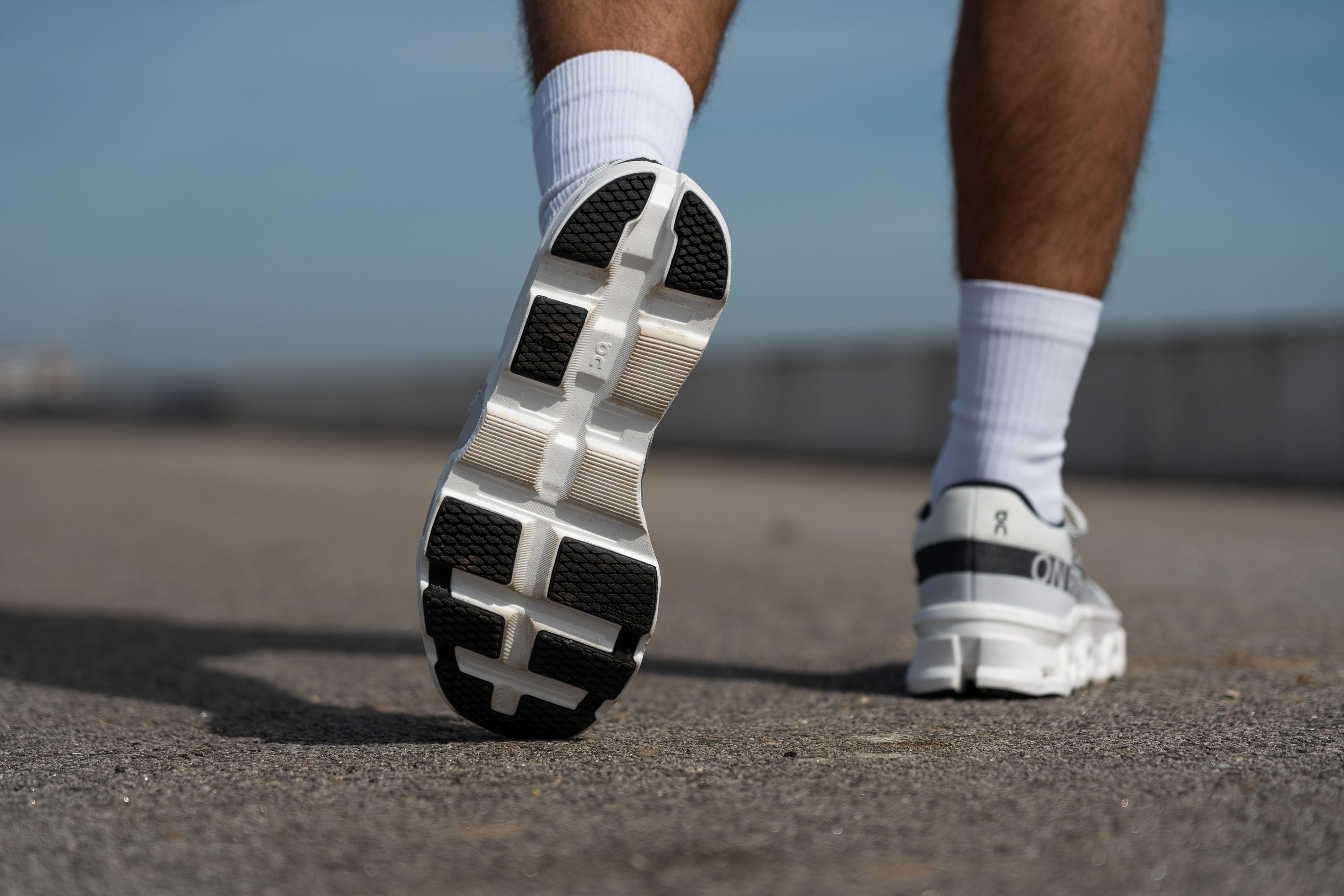
Flexibility / Stiffness
Opting for a TPU plate over carbon fibre enhances the shoe's versatility—a fact we verified during our rigorous 30-degree bend test. The Speedboard plate introduced minimal stiffness, with the Cloudmonster scoring a 17.9N, comparable to many plateless shoes.
This proves that, despite its somewhat bulky appearance, the Cloudmonster 2 is surprisingly adaptable, suitable for both casual walks and gym sessions.
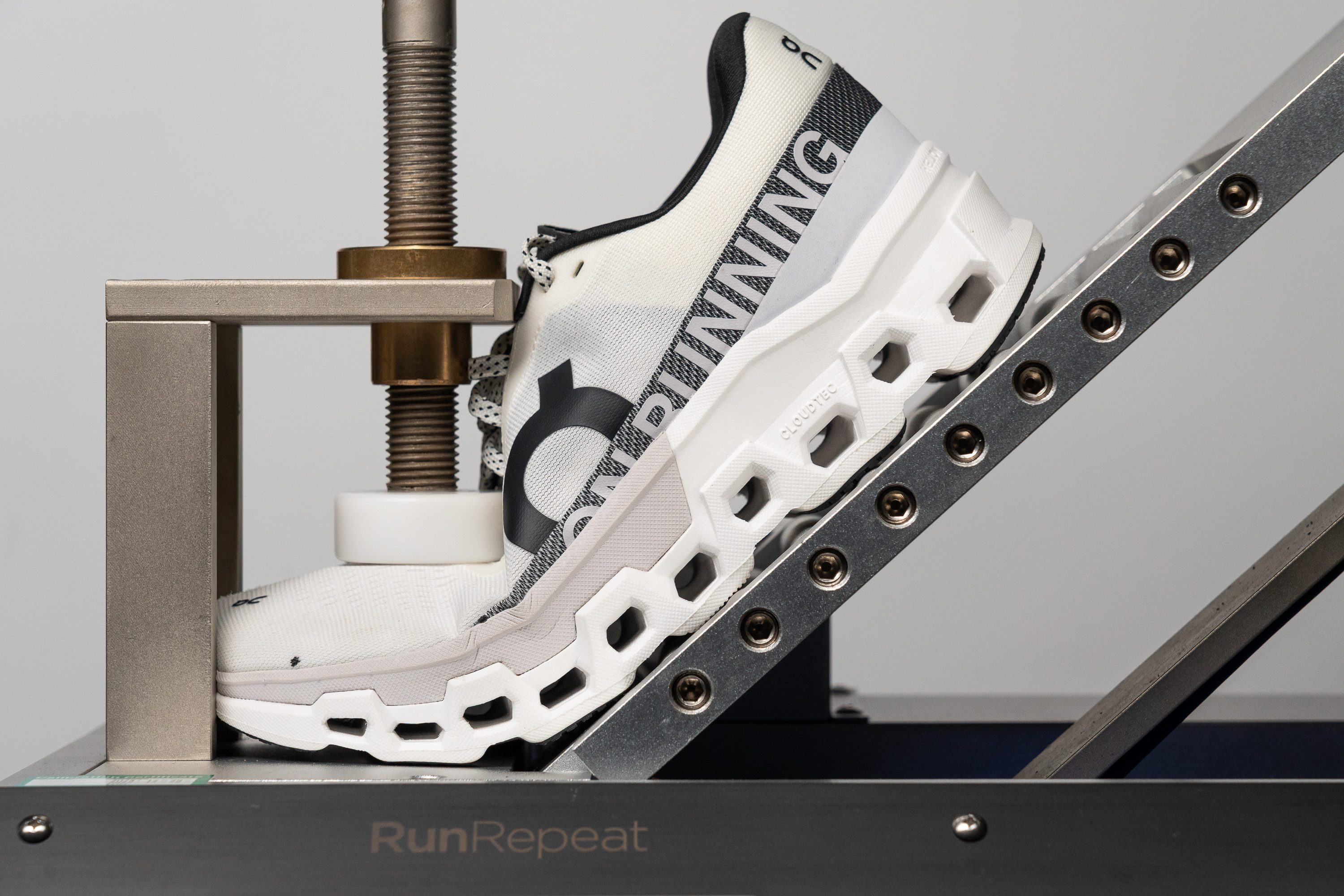
| Cloudmonster 2 | 17.9N |
| Average | 15.3N |
Stiffness in cold (%)
Curious about how the shoe's stiffness would fare in colder conditions, we mirrored the softness test—chilling the shoe for 20 minutes in the freezer before re-measuring in the 90-degree bend test.
The stiffness increased to 37.9N, marking a 21.3% rise. This slight change in stiffness should hardly be noticeable, even in the coldest climates.
| Cloudmonster 2 | 21% |
| Average | 33% |
Weight
The Cloudmonster 2 has gained some weight and ditched the midsole cutout, bumping its stack height.
Weighing in at 10.3 oz (292g), we think it's on the heavier side even for a maximalist shoe. With brands like ASICS rolling out featherweight-yet-skyscraper-high models like the Novablast 4, we believe that On needs to put the next Cloudmonster at least below the 10-oz benchmark.
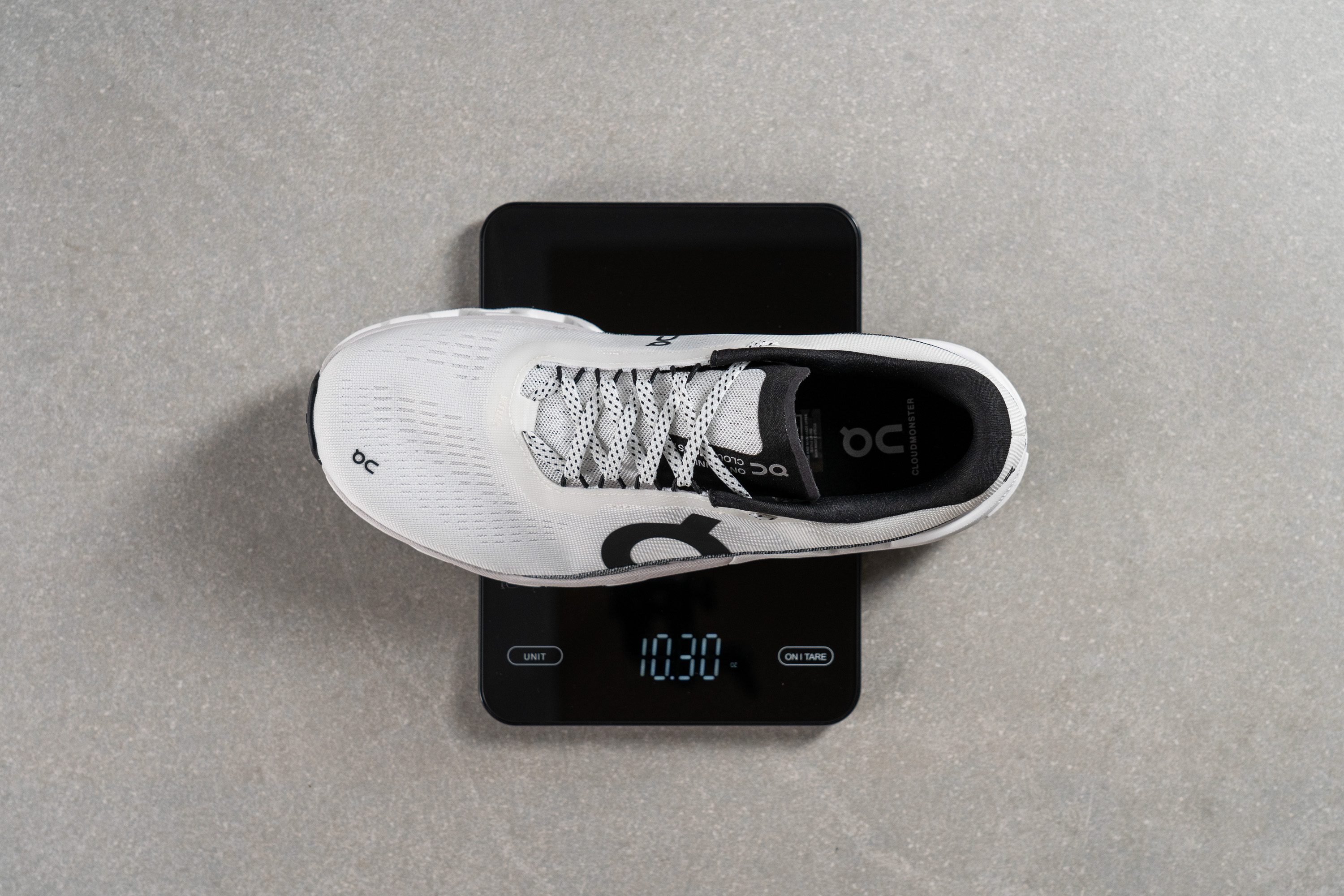
| Cloudmonster 2 | 10.3 oz (292g) |
| Average | 9.3 oz (264g) |
Breathability
The On Cloudmonster 2 showcases an engineered mesh upper that exudes a premium feel, which we obviously expected given its premium price tag. Yet, when we put it to the test with our smoke machine, the ventilation didn't quite live up to our expectations.
Delving deeper into this issue, we shone a light through the upper for further insight. It became clear—the upper is thin, but the so-called ventilation holes lean more towards style than substance.
Curiosity led us to examine the upper under the microscope, where we uncovered the real story. Despite their appearance at first sight, these holes don't offer true ventilation.
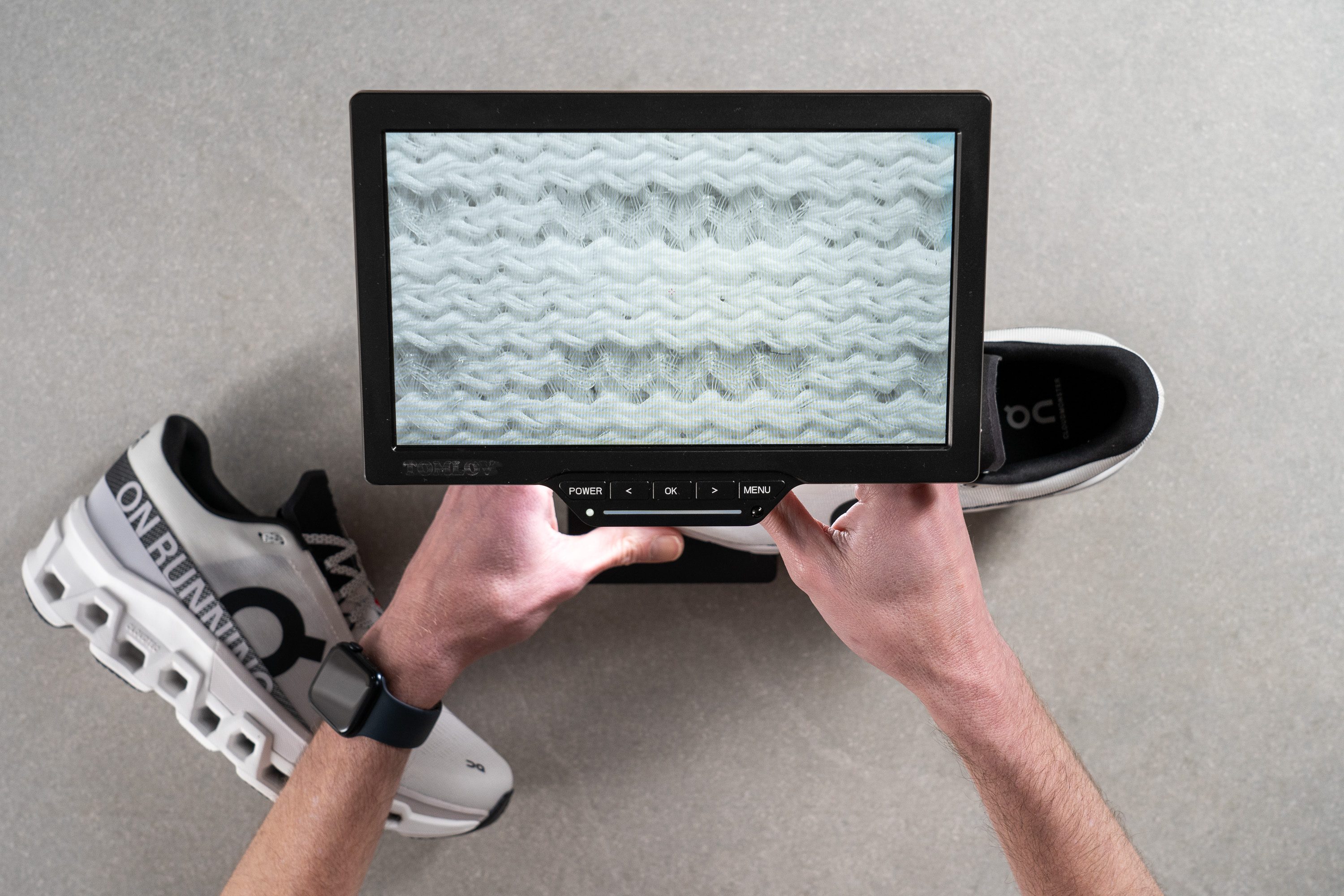
They're missing the outer mesh layer but retain an inner structural mesh, hindering airflow and potentially trapping warmth and moisture.
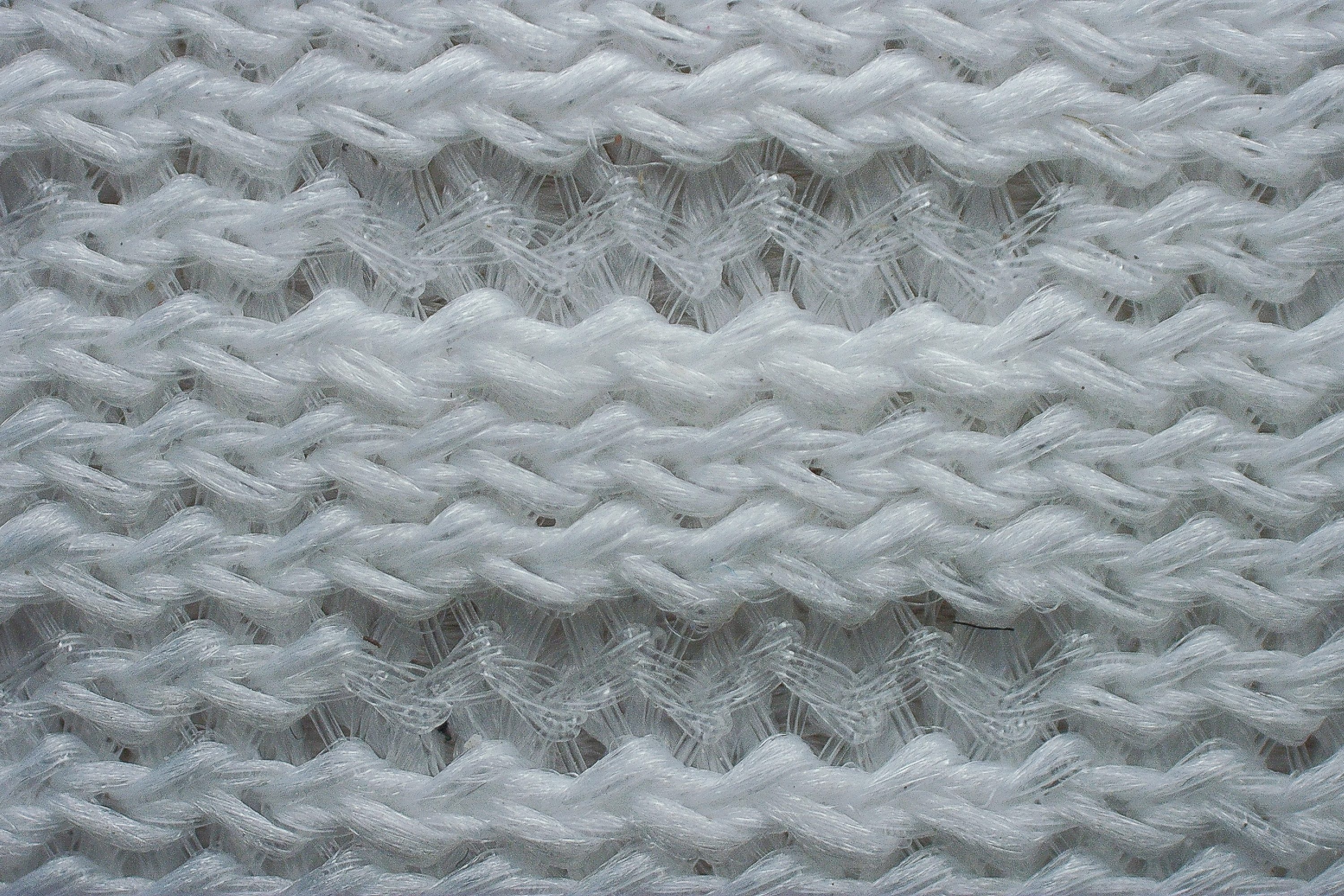
This design choice could be a very, very important drawback for summer runs or for those with particularly warm feet. However, in cooler conditions, it won't be a significant issue, and can even be an advantage for some.
We also found that the padding is on the minimal side for a daily trainer, which might not suit everyone's preference.
| Cloudmonster 2 | 2 |
| Average | 3.7 |
Stability
Lateral stability test
A firmer midsole naturally enhances a shoe's stability, offering a more solid ride than those with ultra-soft foams.
This holds true for the Cloudmonster, which impressively outshines its predecessor in stability, even with a similar midsole composition. Let's uncover the reasons of this improvement!
Torsional rigidity
Considering the TPU construction of the plate, as we previously mentioned, the Cloudmonster 2 scores a moderate 3/5 in torsional rigidity from our perspective—a suitable rating for a daily running shoe. Even at the most easy paces, this level of flexibility contributes to a ride that's consistently smooth and free from discomfort.
| Cloudmonster 2 | 3 |
| Average | 3.5 |
Heel counter stiffness
The original Cloudmonster boasted an unexpectedly flexible, race-inspired heel counter that led to a somewhat wobbly experience plus a bit of heel slippage, particularly for heel strikers—a detail that caught us off guard. However, On has addressed this issue.
We've assigned the Cloudmonster 2's heel counter a solid 3/5 rating, striking a balance that should appeal to the majority of runners. However, individuals sensitive to firmer heel counters, such as those dealing with Haglund's deformity, might prefer the more forgiving heel counter of the previous model.
| Cloudmonster 2 | 3 |
| Average | 2.9 |
Midsole width - forefoot
The Cloudmonster's leap in stability is thanks to several factors, with the forefoot's width being a key player.
With its width now at 117.2 mm—up from 109.0 mm—there's significantly more surface for landing, which is especially great news for forefoot and midfoot strikers, though heel strikers will also find this beneficial.
While this doesn't necessarily transform it into a shoe for those needing extra stability, like what you'd find in the ASICS Kayano 30 or Hoka Arahi 7, it does mean a vastly improved ride for neutral runners.
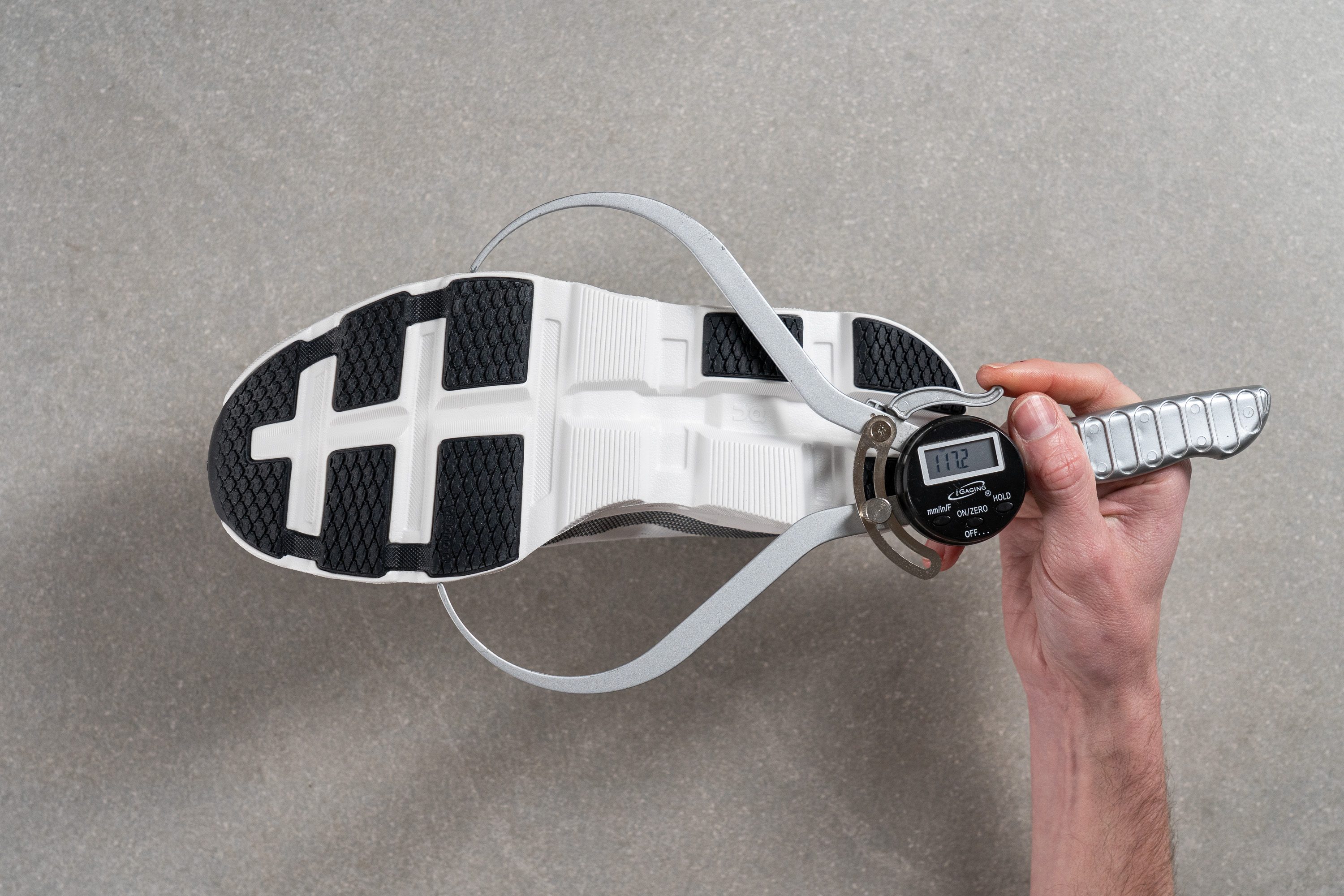
| Cloudmonster 2 | 117.2 mm |
| Average | 114.4 mm |
Midsole width - heel
On the flip side, the heel keeps its slim profile at just 86.3 mm. This measurement, paired with the 6.6-mm drop, caters this shoe towards runners who favour a forefoot or midfoot strike.
Heel strikers with a neutral gait can comfortably use it as well, though it's worth noting that the heel's dimensions might not suit everyone.
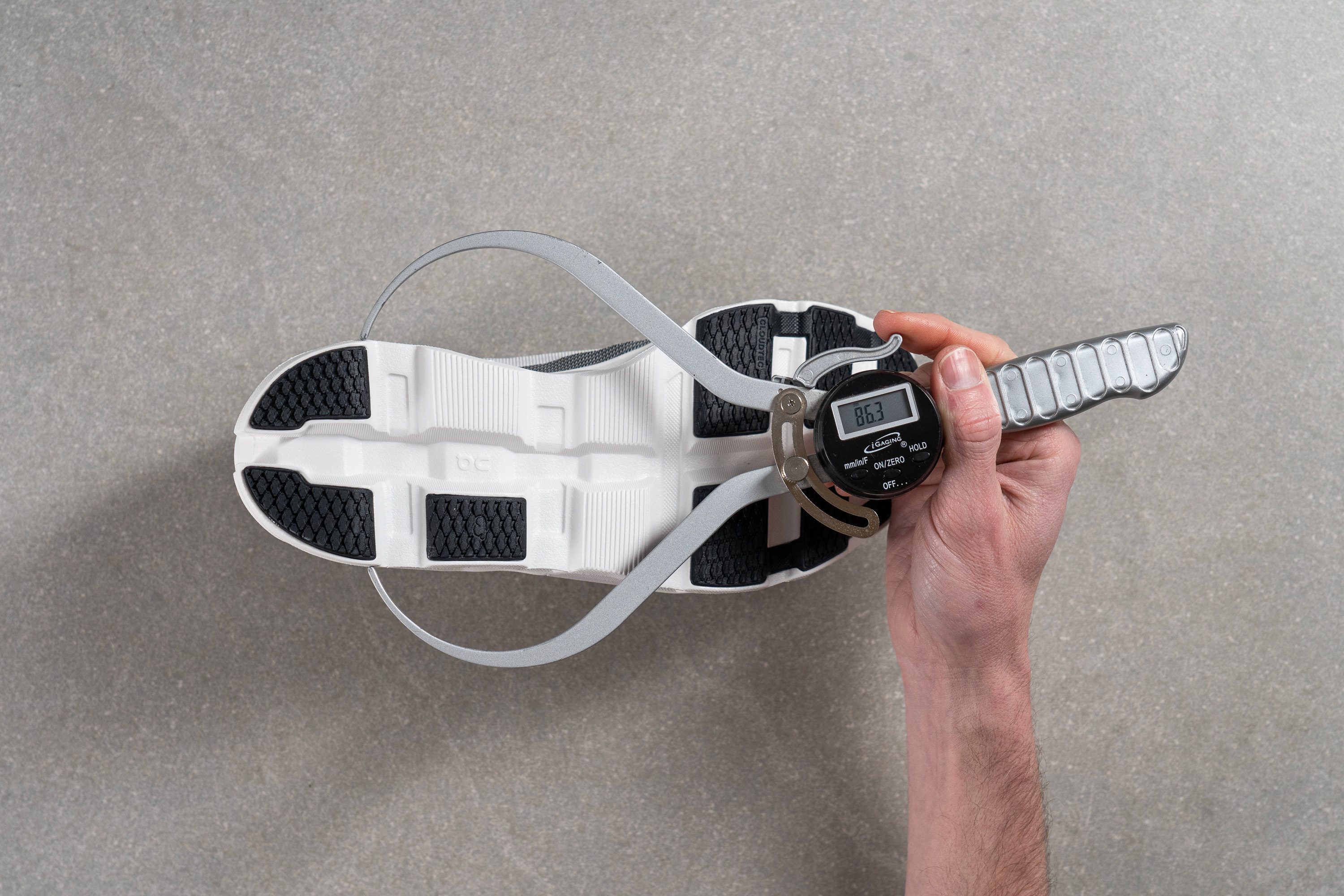
| Cloudmonster 2 | 86.3 mm |
| Average | 90.6 mm |
Durability
Toebox durability
An upside to the Cloudmonster 2's solid mesh design is its potential for outstanding durability. Often, shoes break in this test at the ventilation points, but this engineered mesh could significantly enhance its longevity.
Our initial Dremel test confirmed our optimism—the shoe withstood the challenge with remarkable resilience, scoring a perfect 5/5, much like a rugged trail shoe. Yet, it retains the comfort expected of a top-notch road daily trainer!
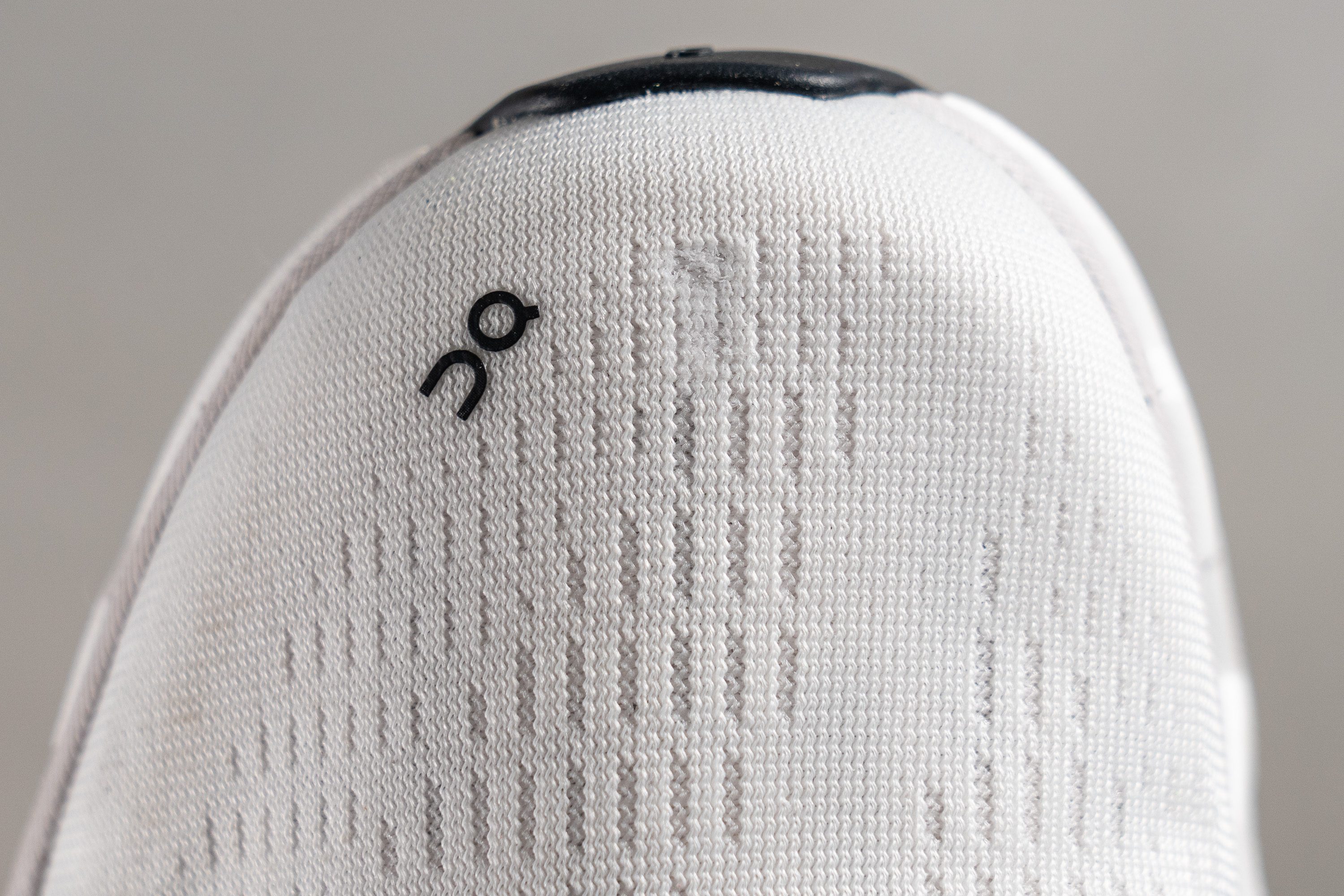
| Cloudmonster 2 | 5 |
| Average | 2.6 |
Heel padding durability
Continuing our tests with the Dremel set at 5K RPM, we shifted our focus to the heel padding of the Cloudmonster 2.
The outcome was somewhat underwhelming, meriting just a 3/5 from us. While the result is undoubtedly competent, we had higher expectations for a daily trainer priced at nothing less than £180.
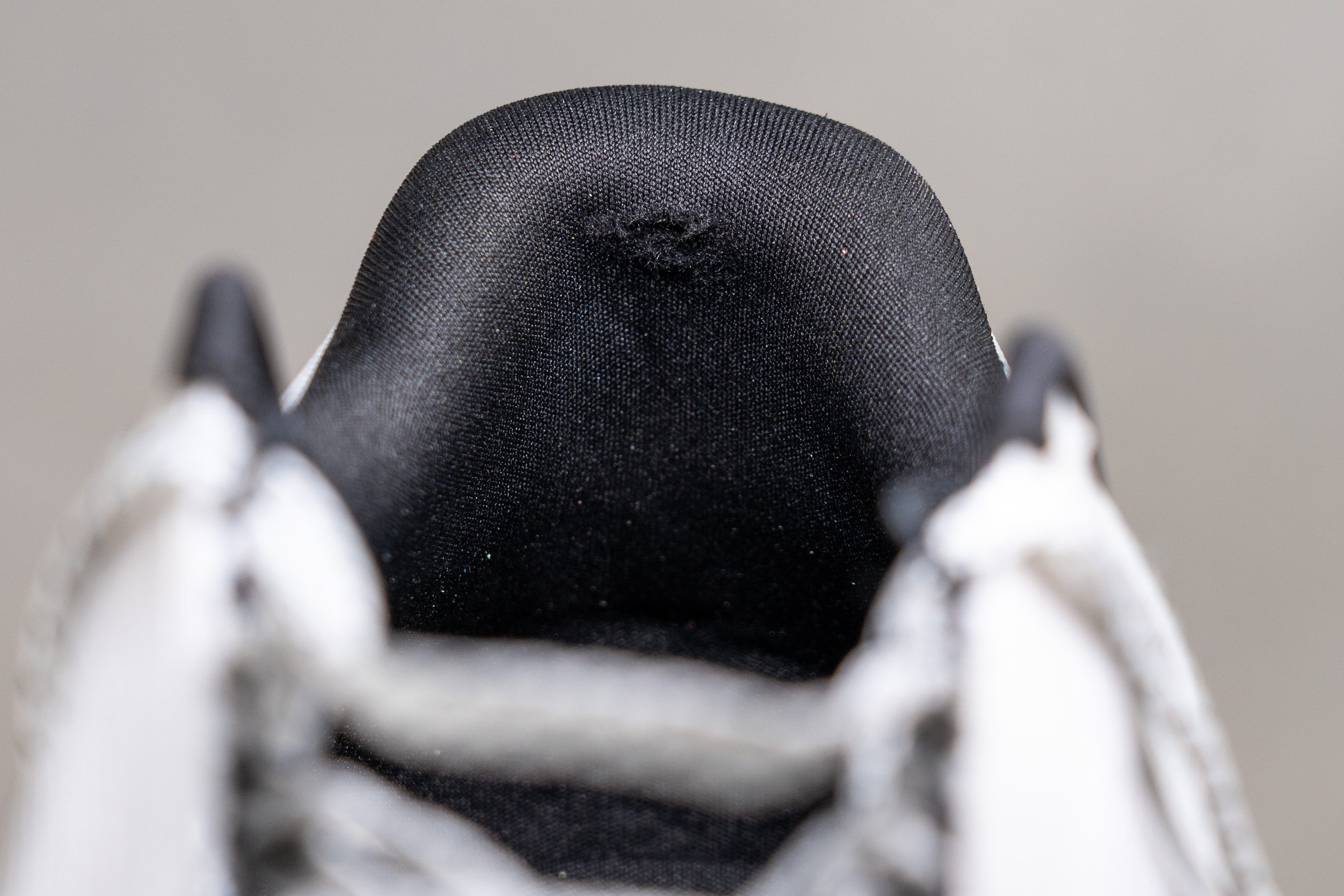
| Cloudmonster 2 | 3 |
| Average | 3.4 |
Outsole hardness
Turning our focus to the outsole, we started with our standard hardness test, gauging the rubber with a durometer. The reading hit 85.4 HC, significantly harder than its predecessor.

The rationale behind this shift seems rooted in durability concerns voiced by runners regarding the Cloudmonster v1, especially given its hefty price tag. On appears to have opted for enhancing longevity at the slight expense of grip—a decision we find understandable, especially because in our experience, traction is still great!
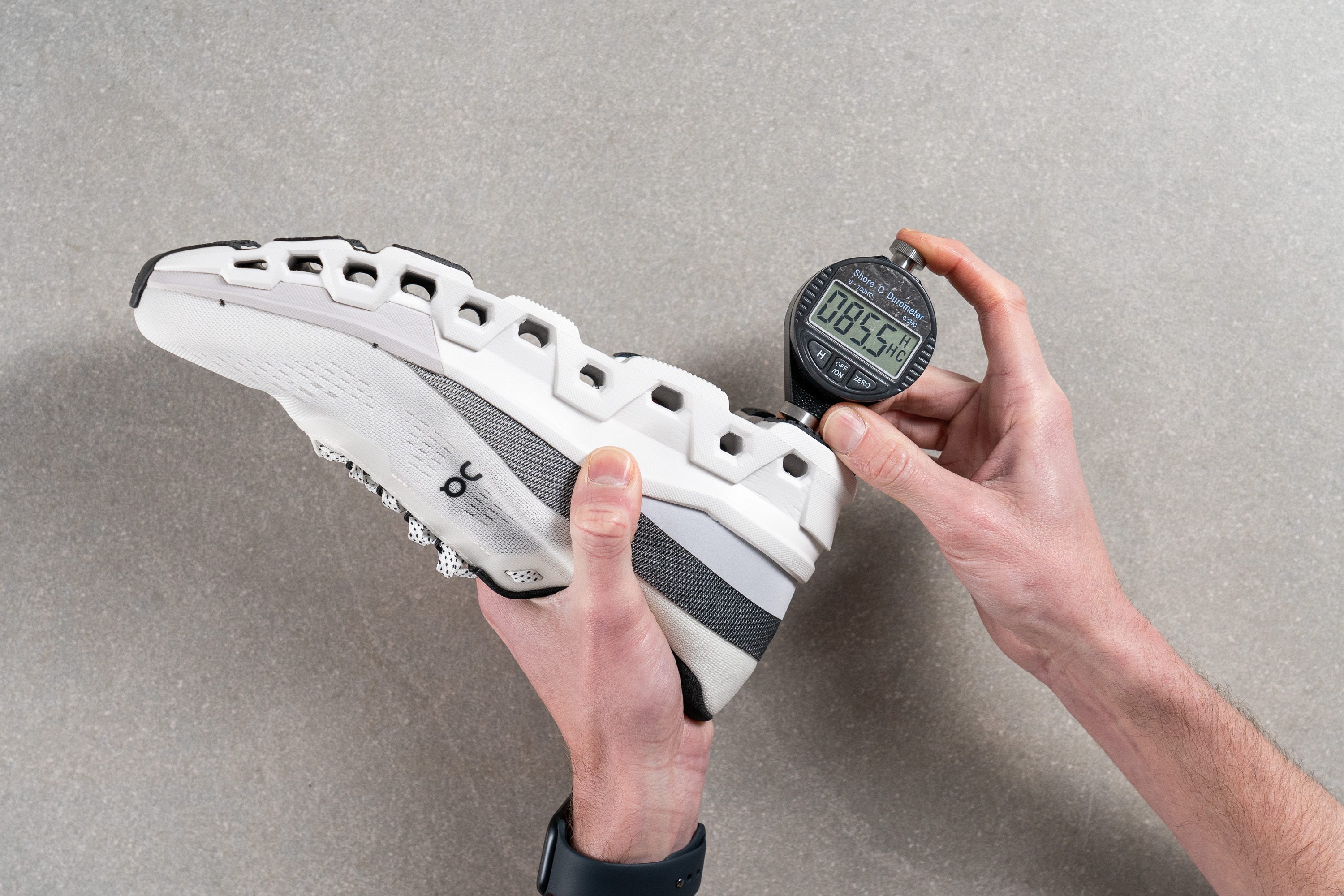
| Cloudmonster 2 | 85.4 HC |
| Average | 79.2 HC |
Outsole durability
While numbers can tell one story, we value hands-on testing to understand the full narrative. So, we gave the Dremel one final spin on the outsole. There we go!
The torture resulted in a mere 0.8-mm indentation, reinforcing the outsole's exceptional durability—leaving no room for concern.
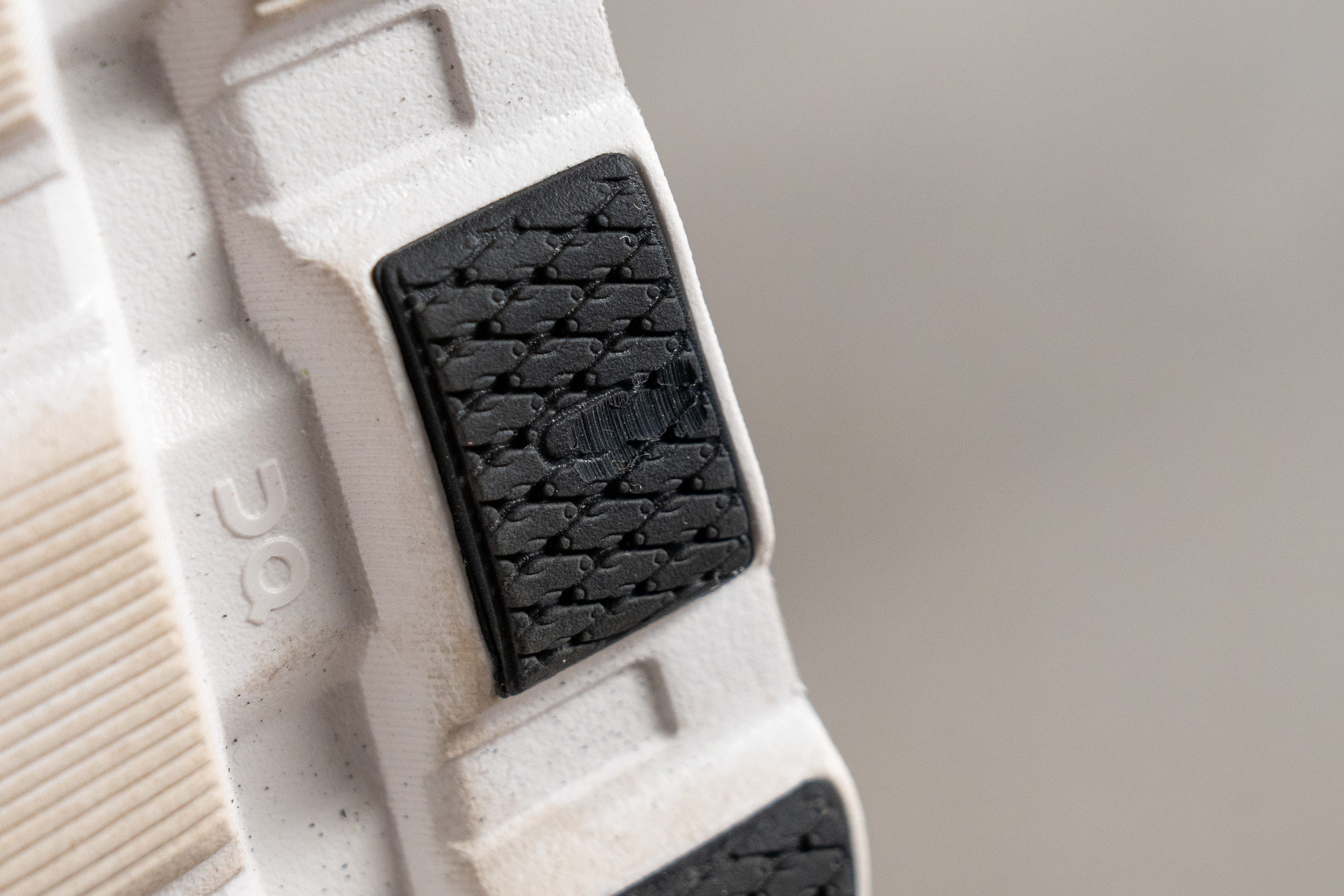
| Cloudmonster 2 | 0.8 mm |
| Average | 1.1 mm |
Outsole thickness
But if you had any doubts, our measurement of a 3.3-mm outsole thickness should put them to rest. This thickness guarantees ample rubber to shield the midsole, promising durability for hundreds of miles ahead!
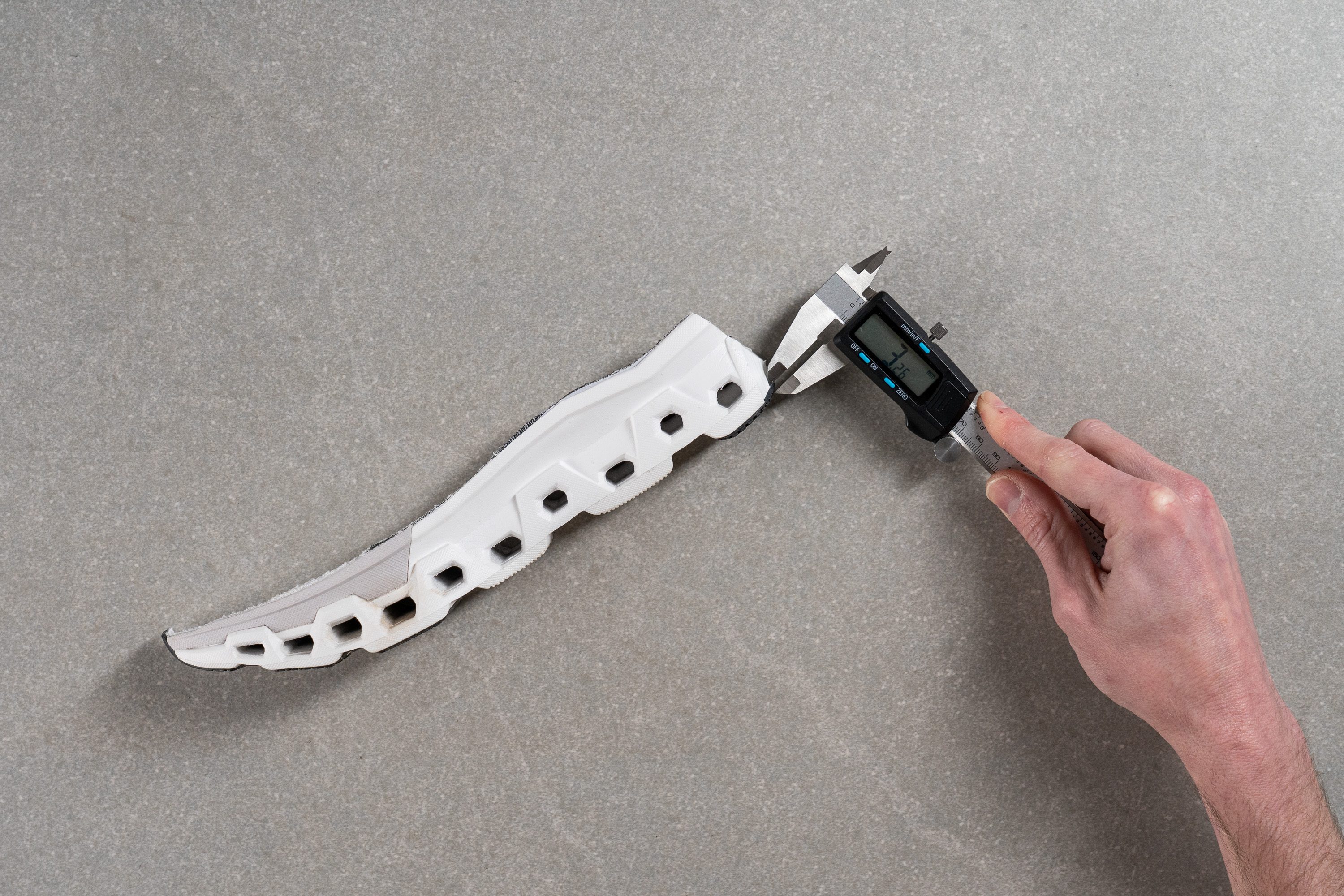
| Cloudmonster 2 | 3.3 mm |
| Average | 3.2 mm |
Misc
Insole thickness
The insole, at a fairly standard 4.7 mm thickness, adds an extra layer of comfort without standing out from the crowd, as it's made of regular foam.
It ensures a soft feel underfoot and doesn't contribute to heat build-up during runs, which is important with the less-than-ideal airflow of this shoe.
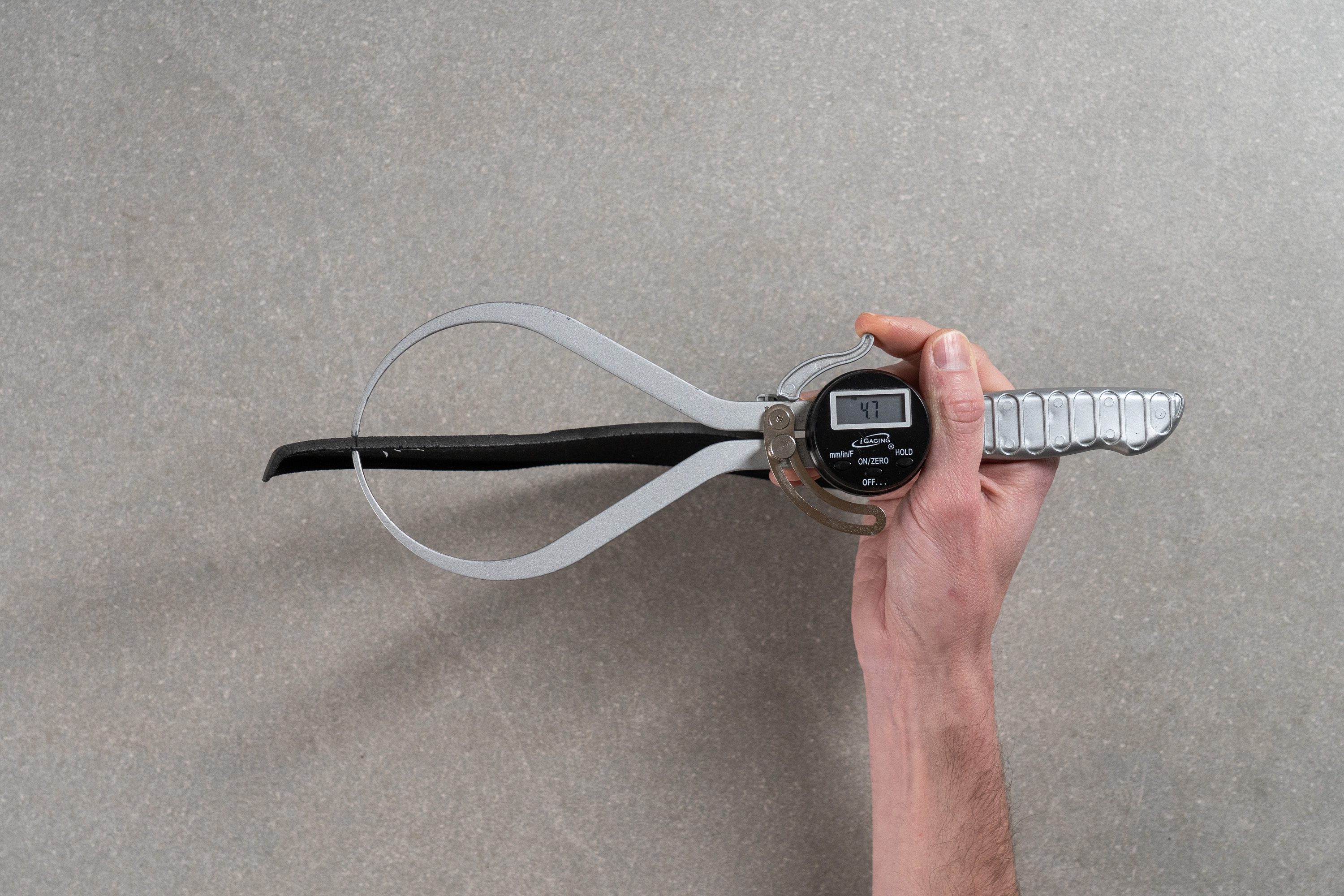
| Cloudmonster 2 | 4.7 mm |
| Average | 4.5 mm |
Removable insole
The insole is easily removable, featuring a conventional shape and thickness, making it highly compatible with third-party options for a seamless swap if needed.
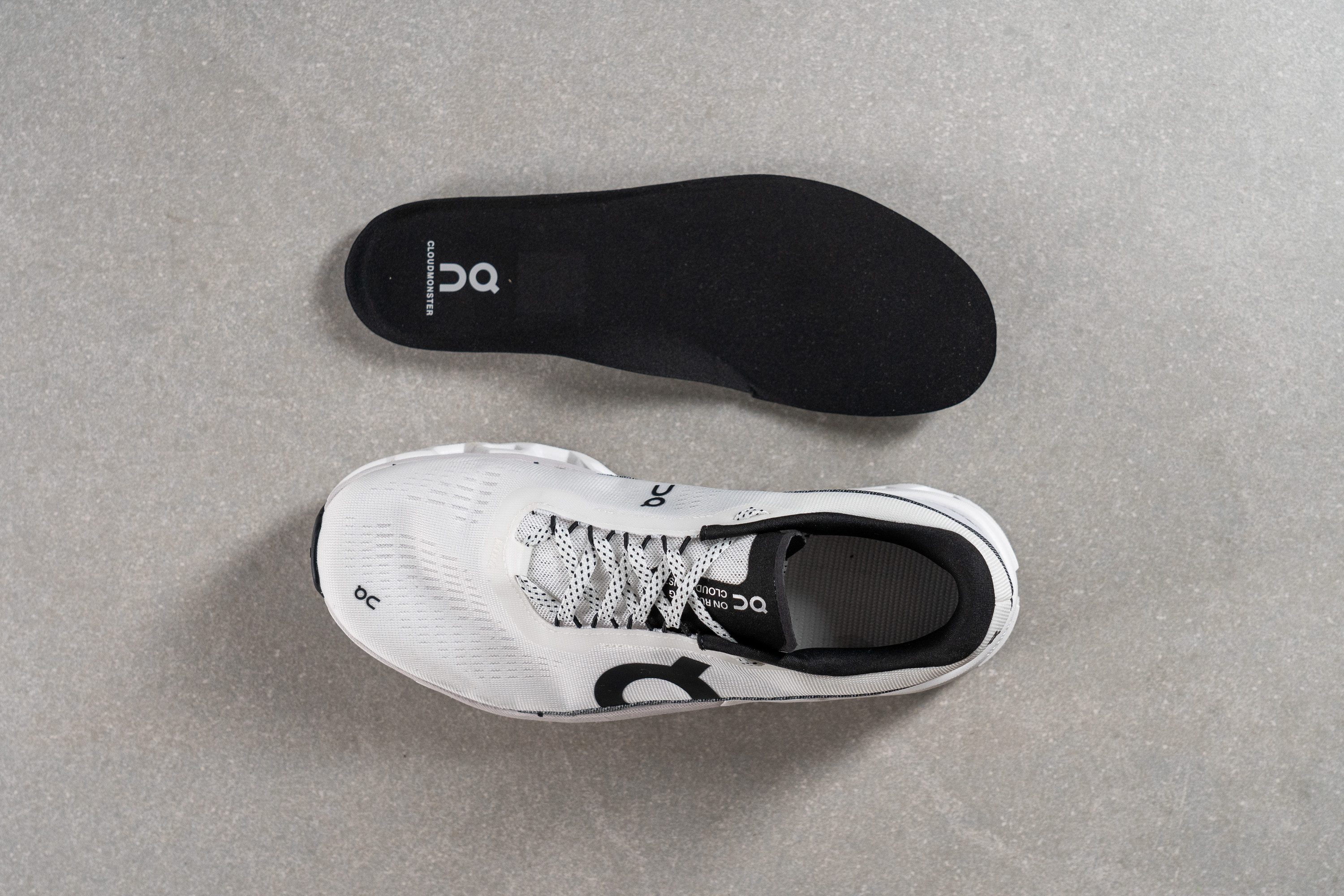
| Cloudmonster 2 | Yes |
Midsole softness in cold (%)
To assess the Cloudmonster 2's cold weather performance, we placed it in the freezer for 20 minutes before re-measuring its firmness with the durometer.
We discovered the foam became 19.4% firmer—a solid performance for an EVA-based foam. The change is subtle enough that most runners will hardly notice it.
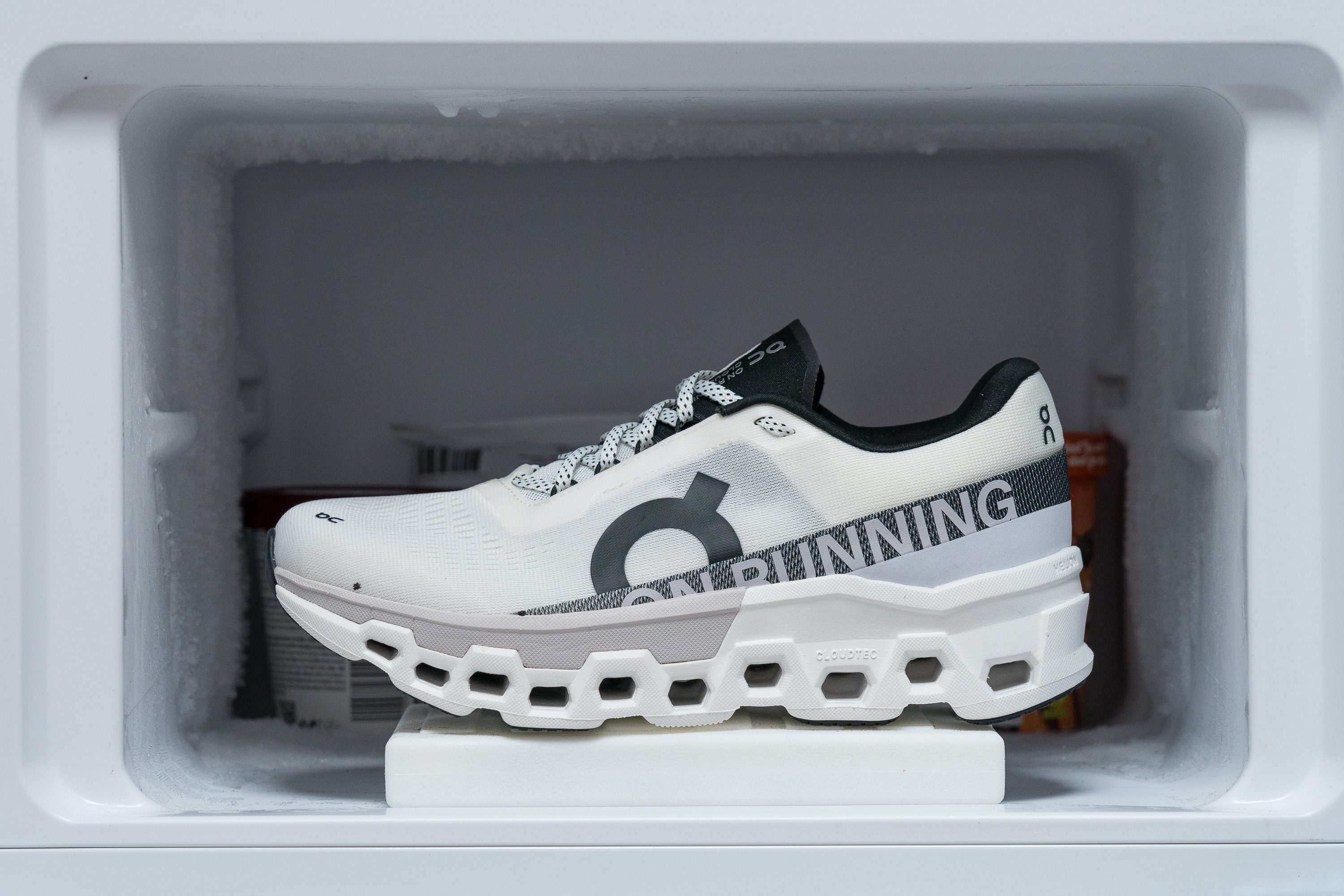
| Cloudmonster 2 | 19% |
| Average | 24% |
Reflective elements
Regrettably, On has chosen to omit reflective elements from the Cloudmonster 2, a decision we find hard to justify in a £180 daily trainer.
Especially given the brand's history of incorporating high-visibility features into their shoes, this omission feels like a big letdown.
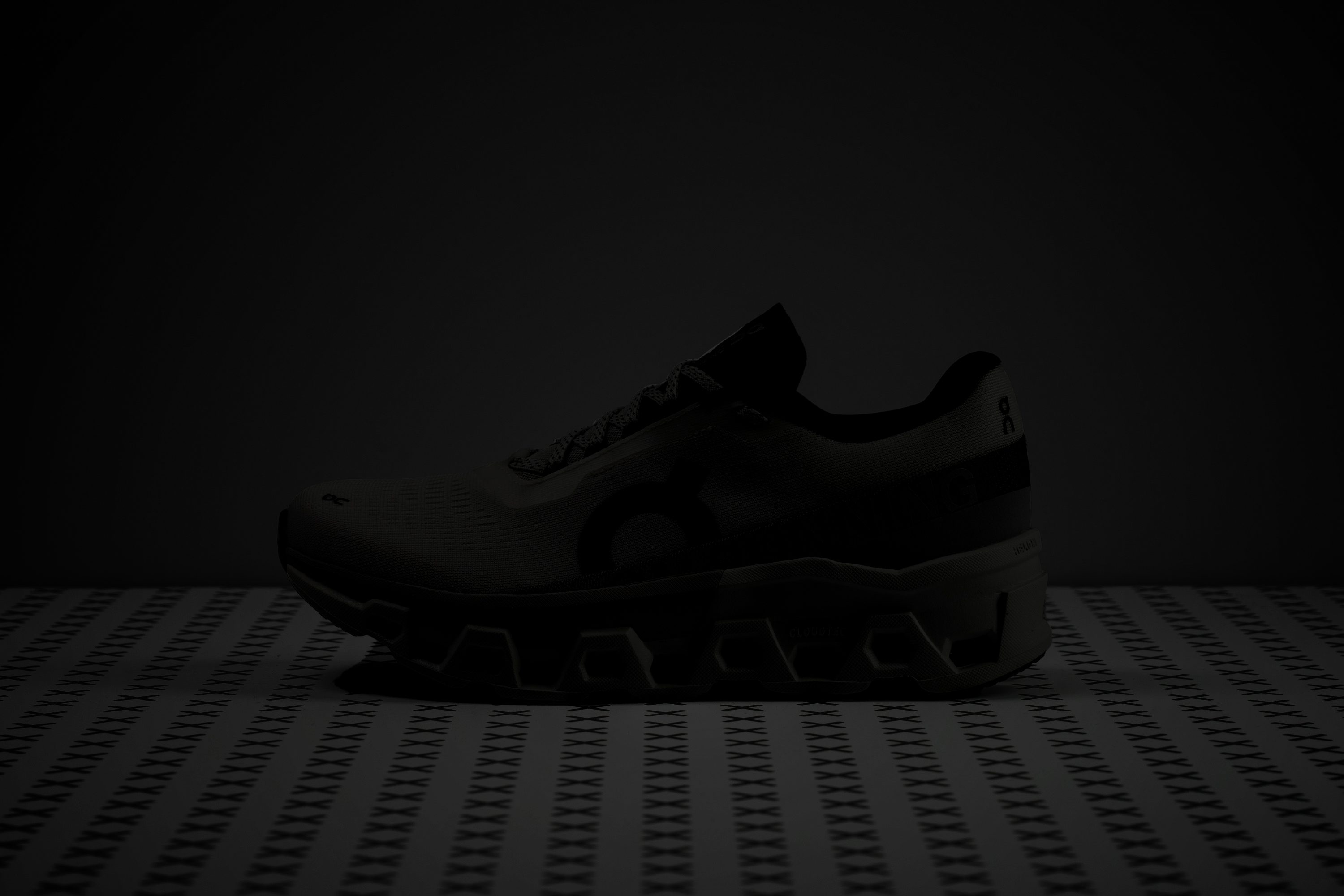
| Cloudmonster 2 | No |
Tongue padding
We also found that the tongue on the Cloudmonster v2 is exceptionally thin for a daily trainer at just 1.5 mm. If you've had issues with thin tongues like lace bite, this might not be the shoe for you, as this tongue it's more like something you'd find on a racing flat.
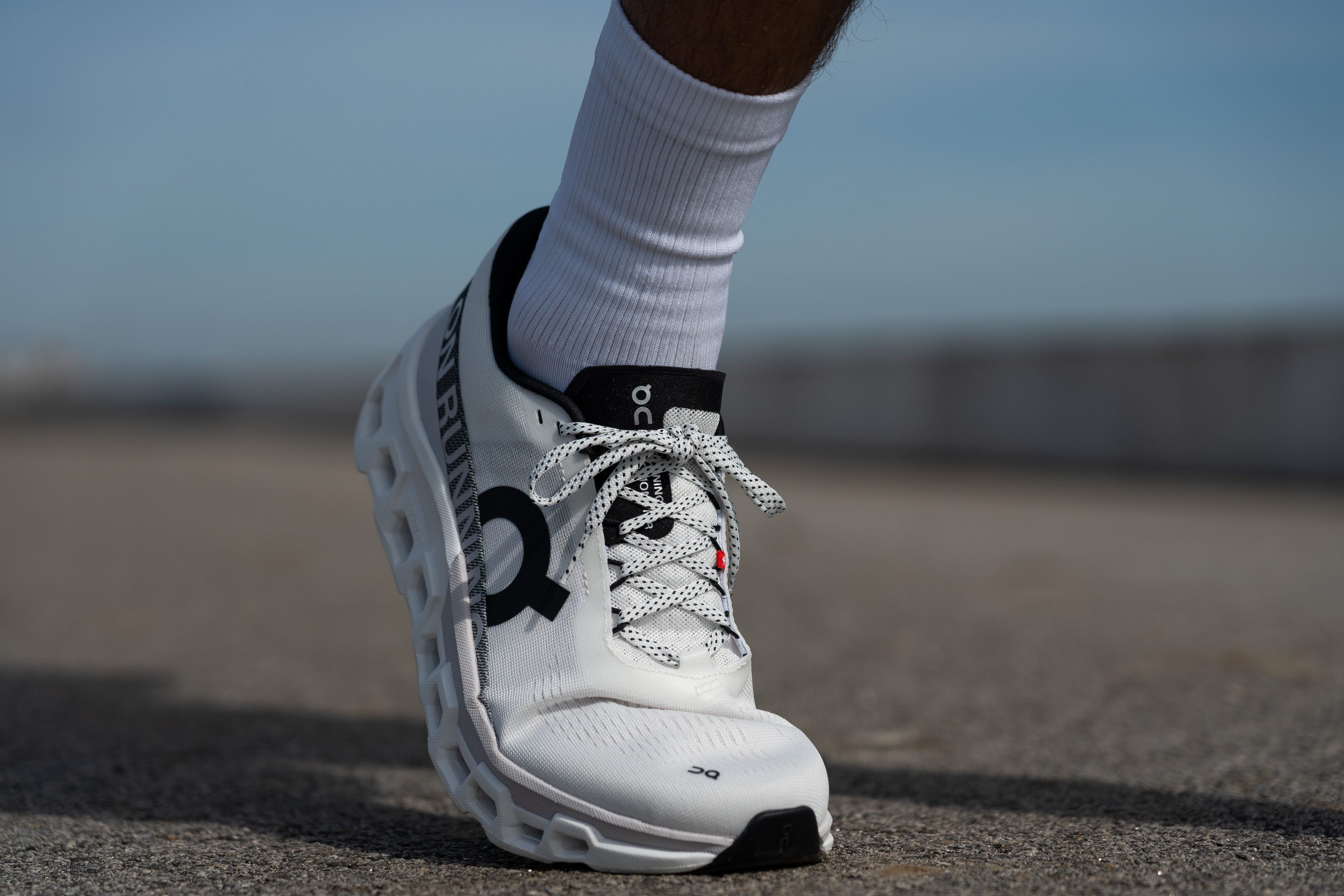
For those seeking more cushioning above the foot, On's Cloudsurfer 7 comes with a luxurious, 10.5-mm thick tongue, offering a cloud-like embrace for your instep, a stark contrast to the Cloudmonster's minimalism.
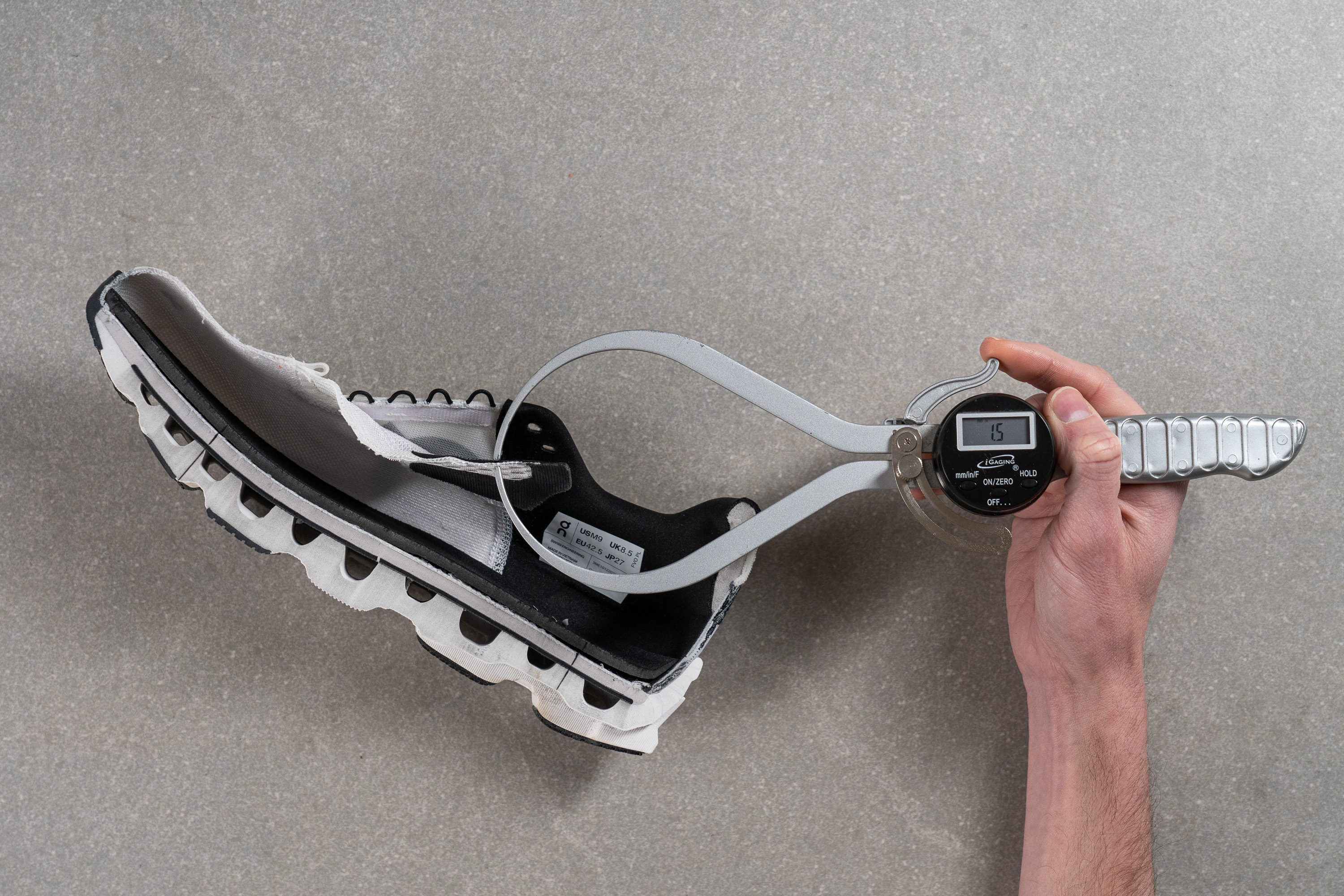
| Cloudmonster 2 | 1.5 mm |
| Average | 5.7 mm |
Tongue: gusset type
We discovered that the tongue is fully gusseted—crucial for ensuring a great fit in this wide upper, a feature that shines even more when considering the tongue's slim profile.
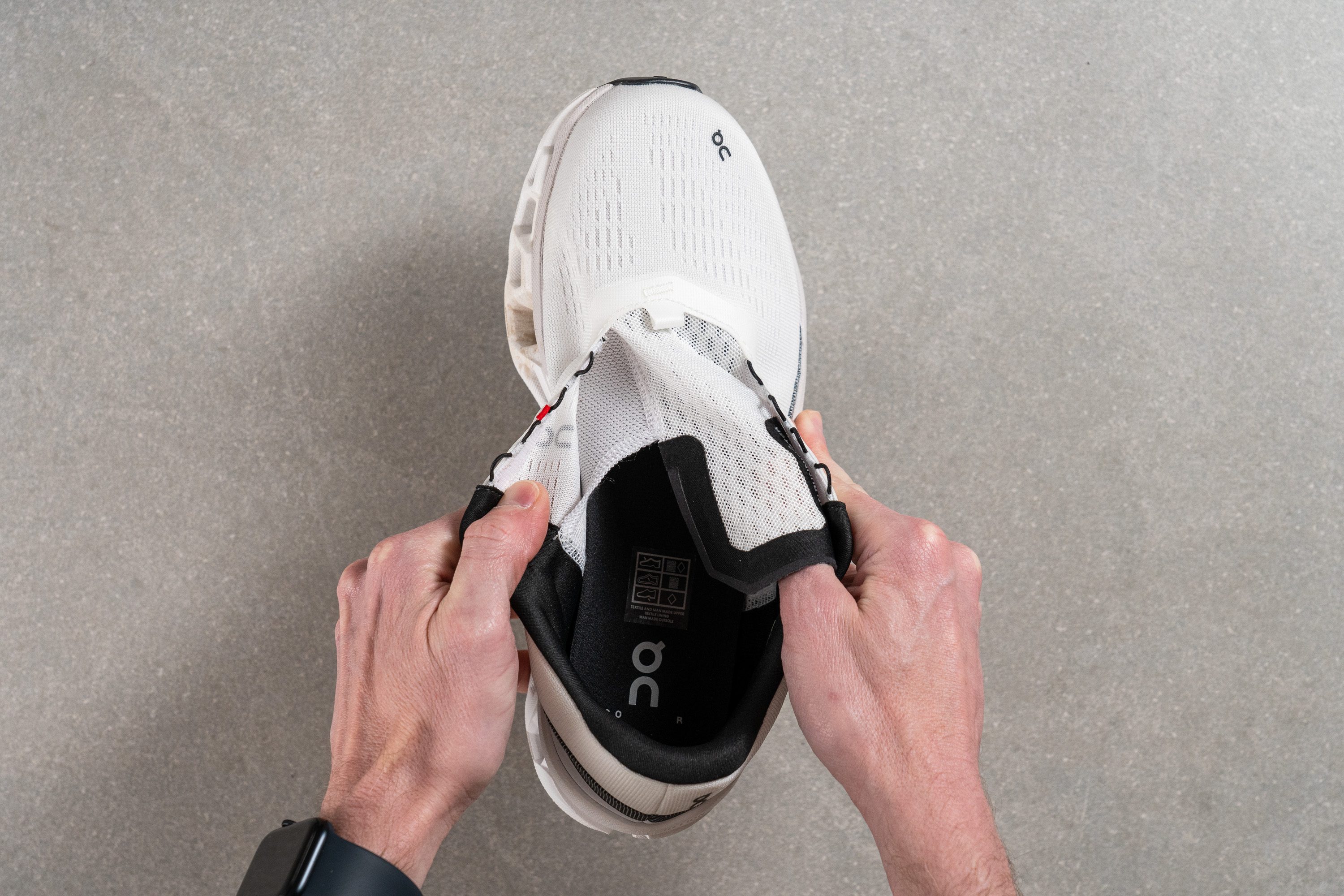
| Cloudmonster 2 | Both sides (full) |
Heel tab
Just like the original Cloudmonster, On chose not to include a heel tab on the Cloudmonster v2. Nonetheless, we found slipping our feet into the shoe effortless without it.
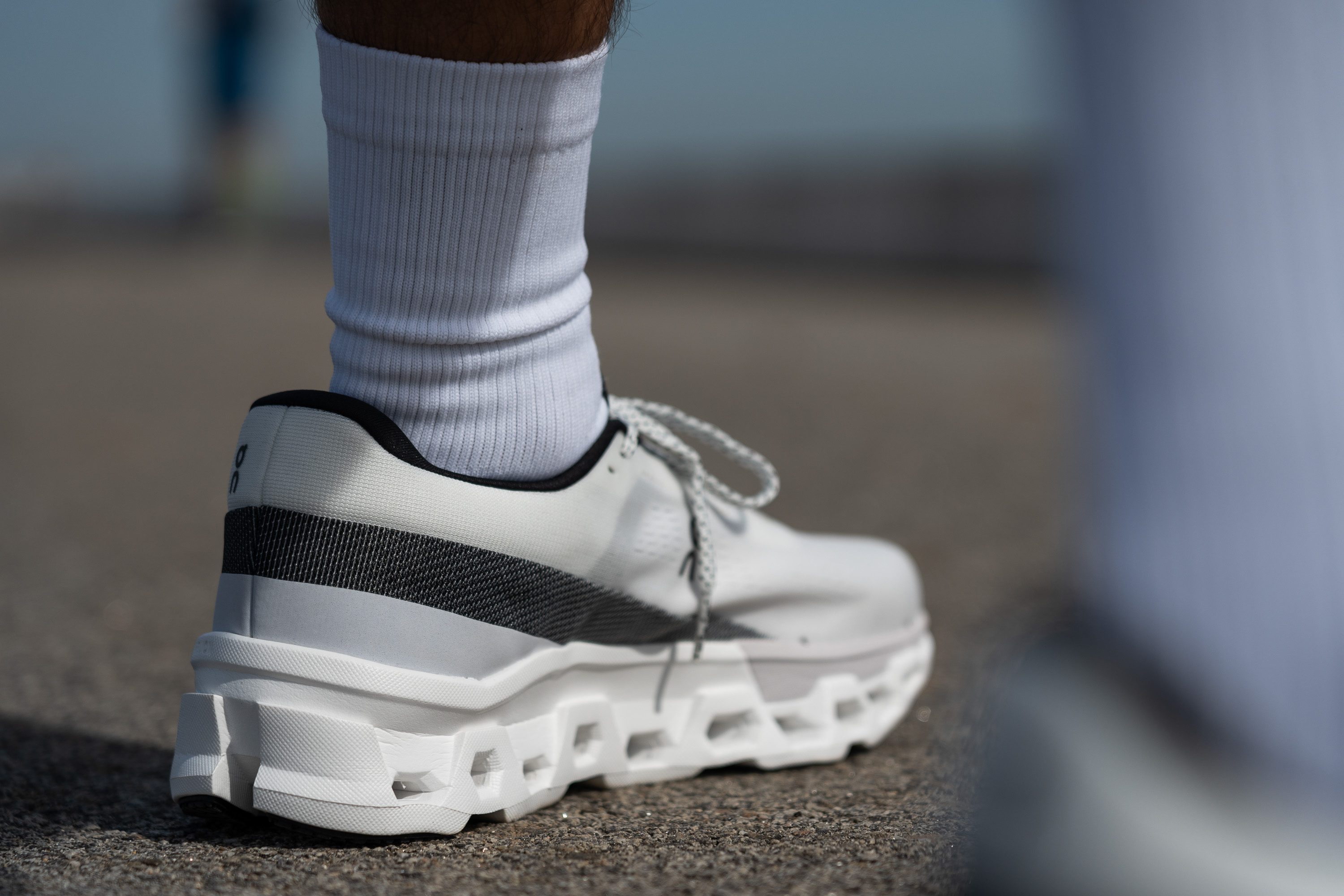
| Cloudmonster 2 | None |

